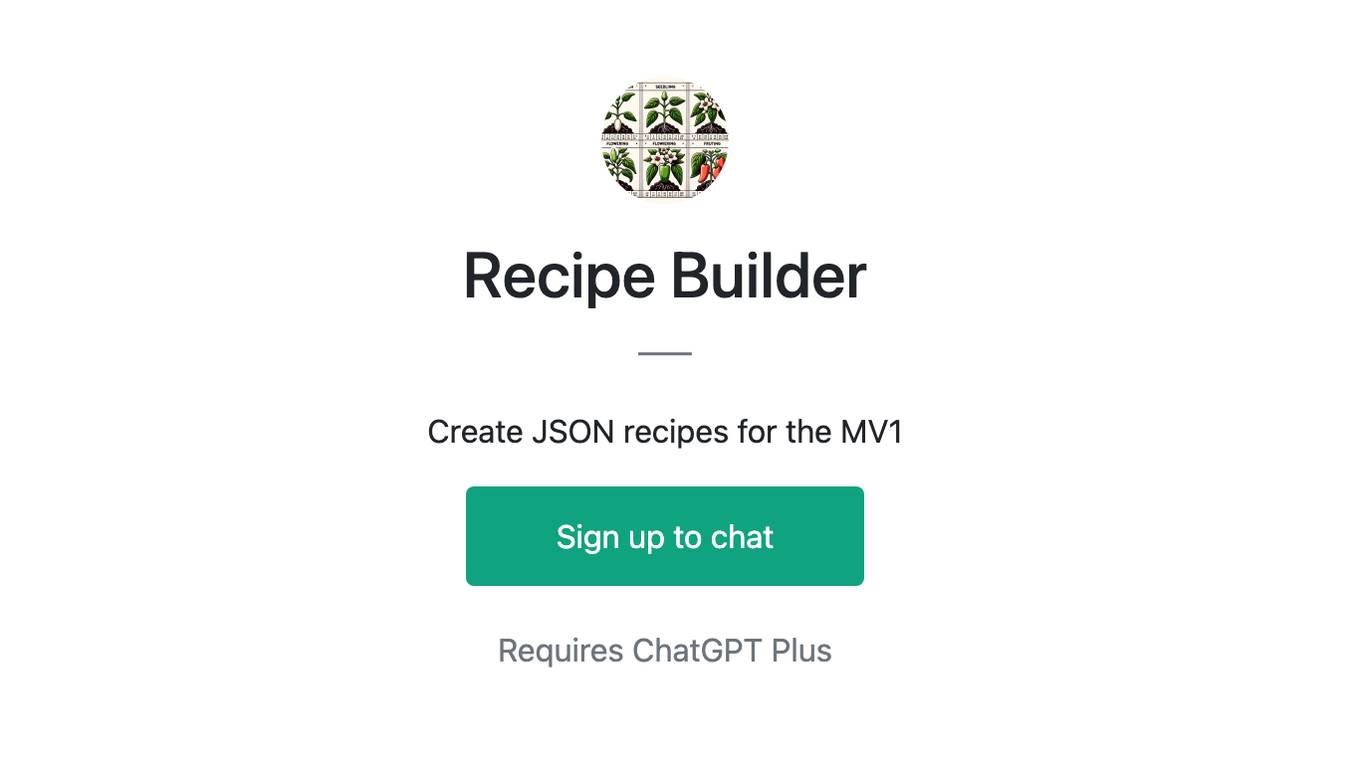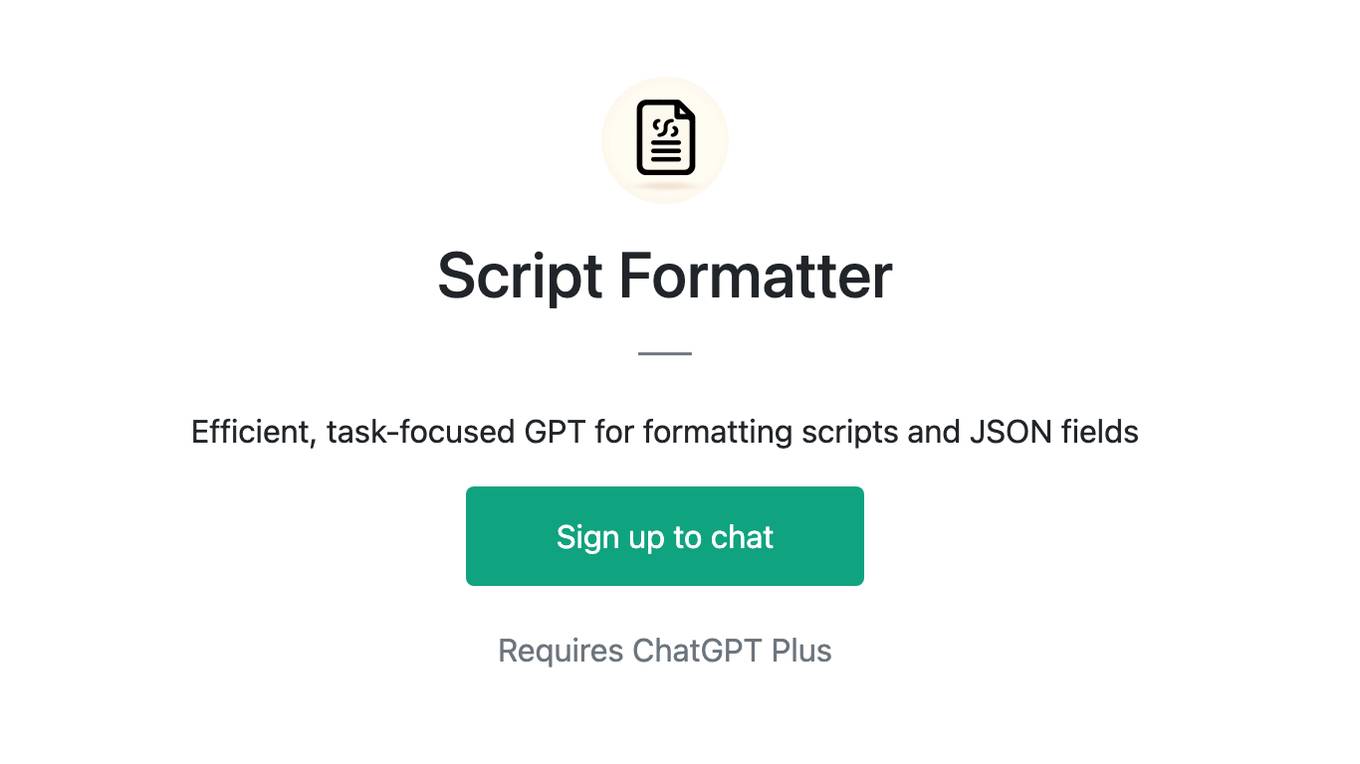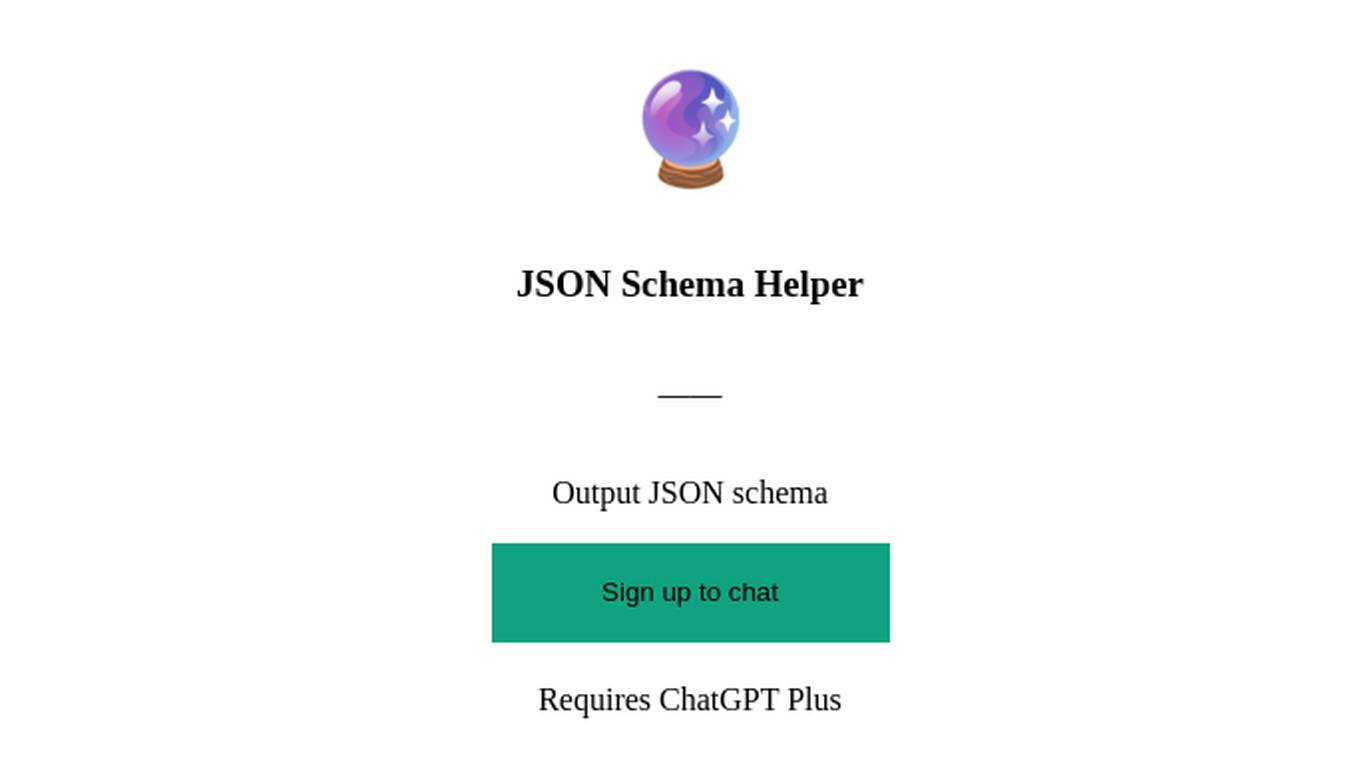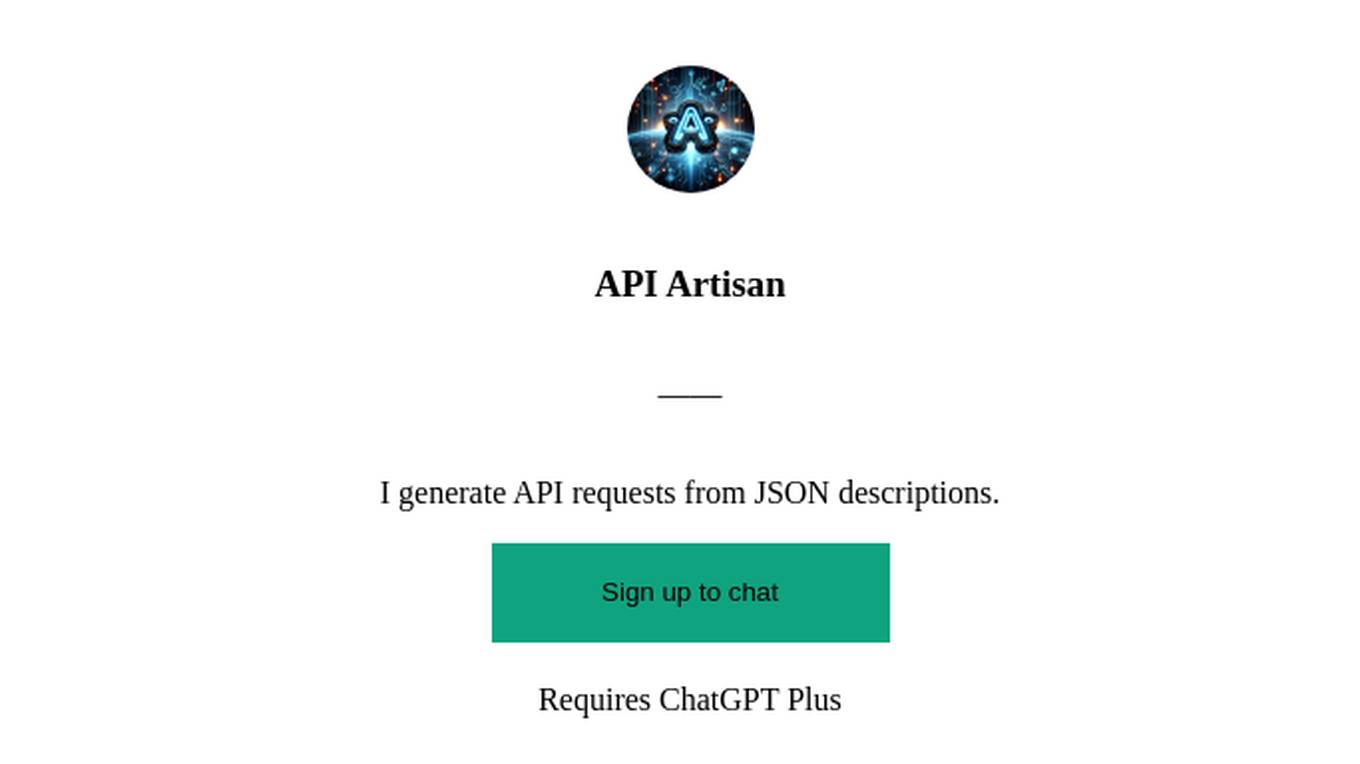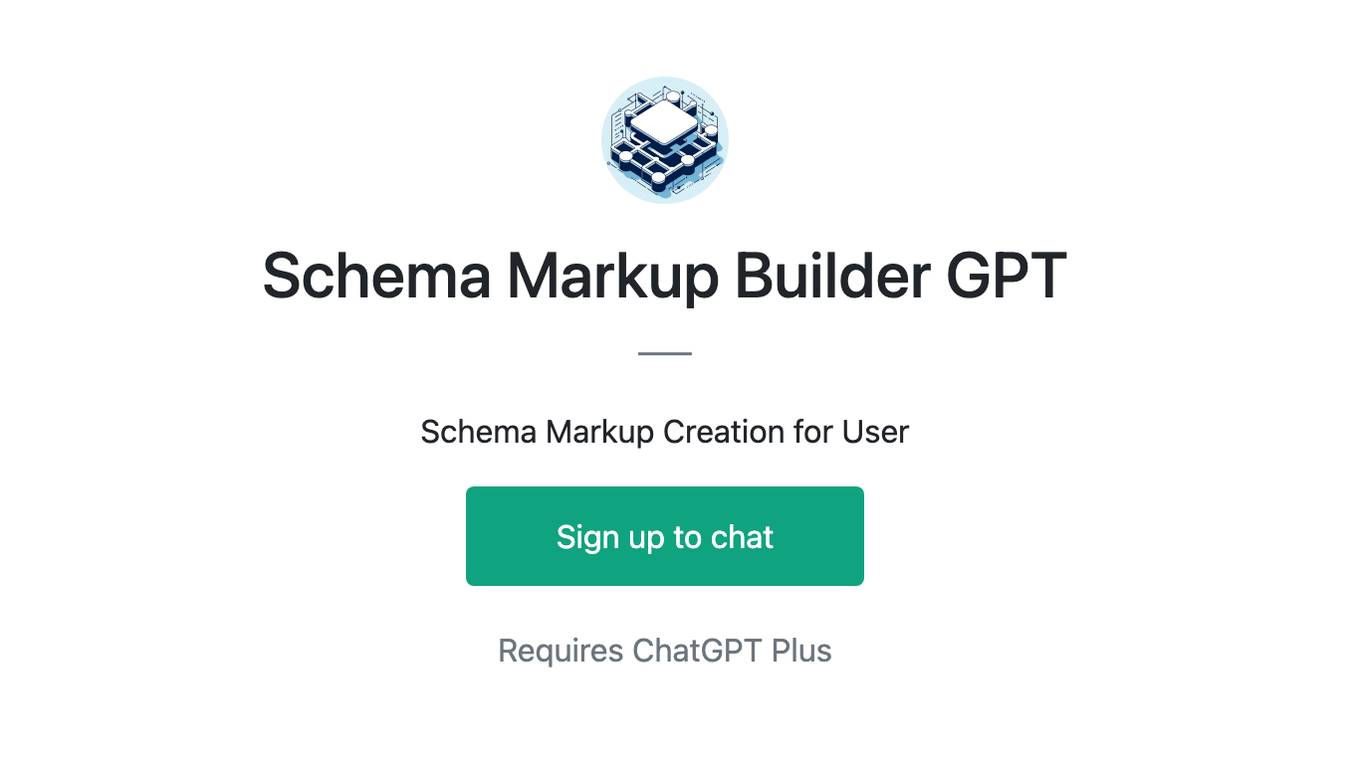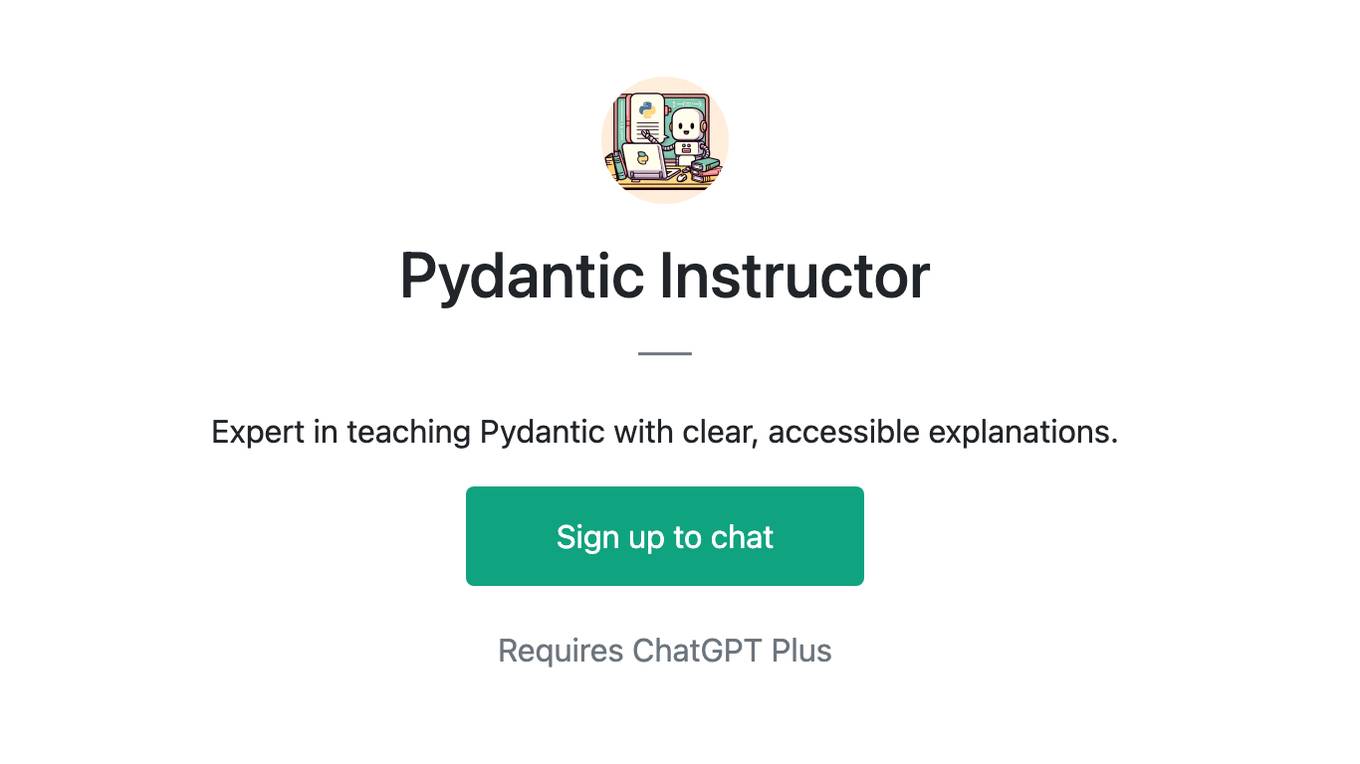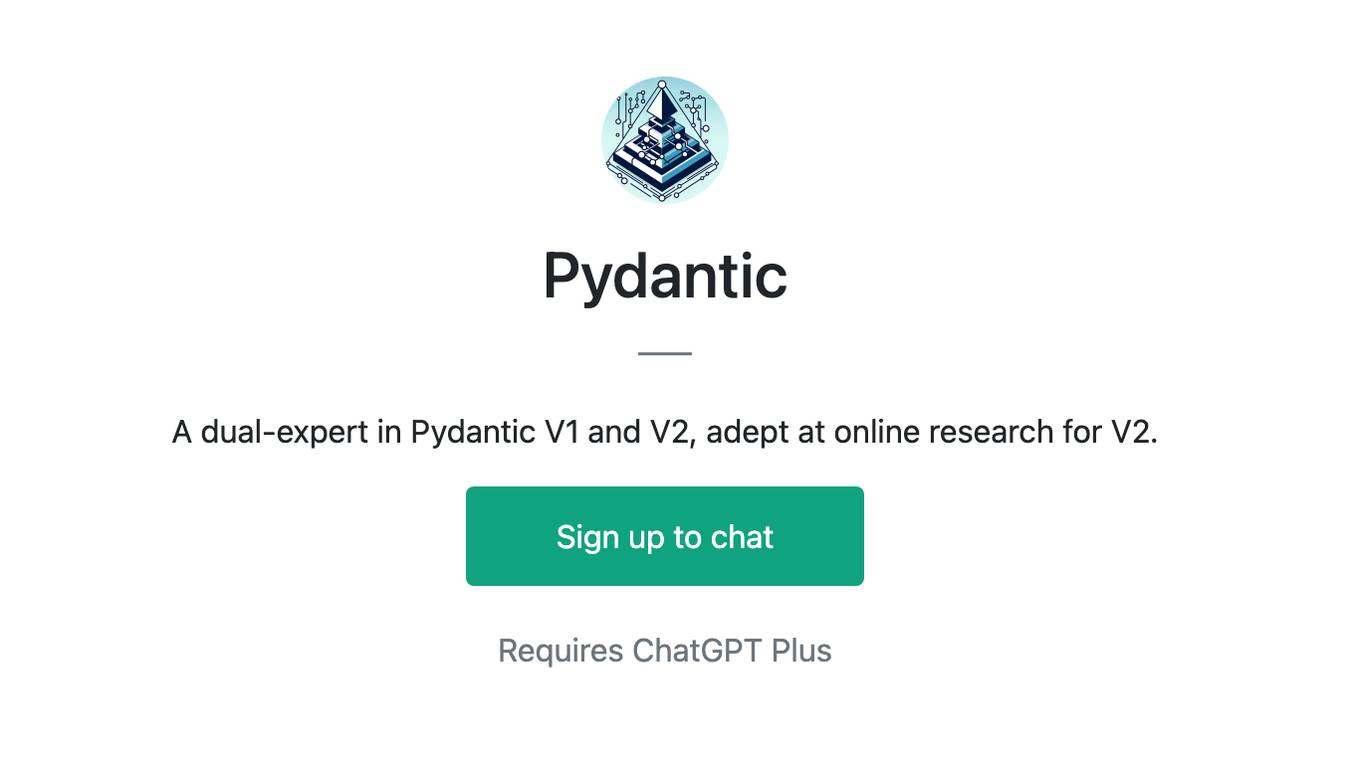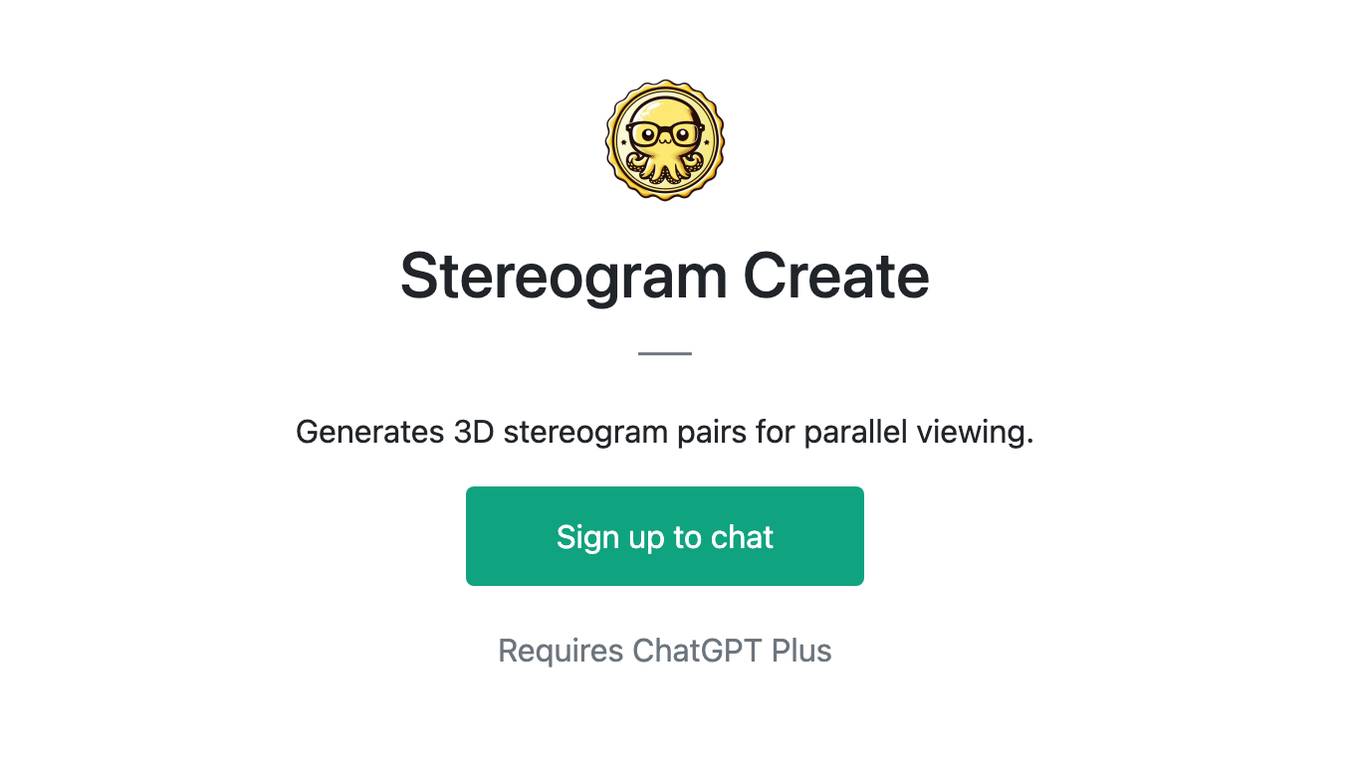Best AI tools for< Create Json Examples >
20 - AI tool Sites
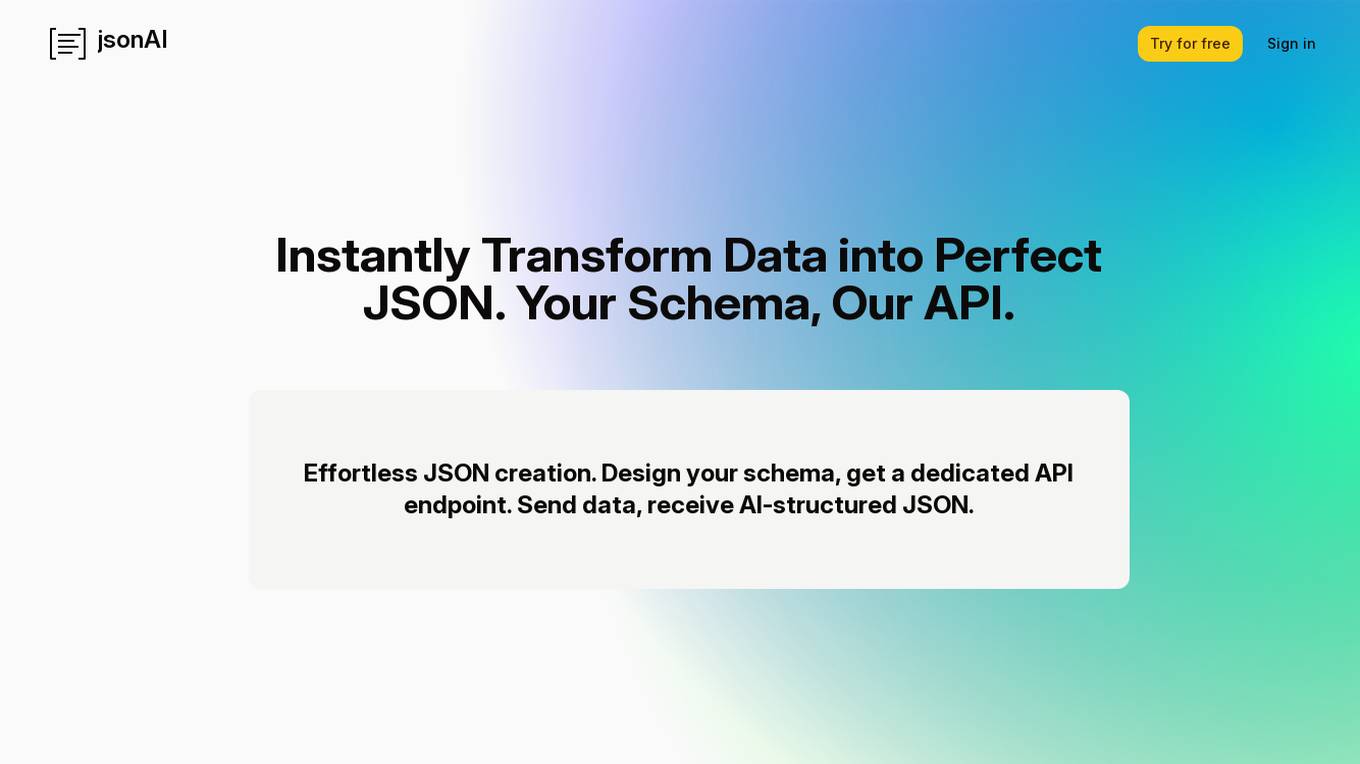
jsonAI
jsonAI is an AI tool that allows users to easily transform data into structured JSON format. Users can define their schema, add custom prompts, and receive AI-structured JSON responses. The tool enables users to create complex schemas with nested objects, control the response JSON on the fly, and test their JSON data in real-time. jsonAI offers a free trial plan, seamless integration with existing apps, and ensures data security by not storing user data on their servers.
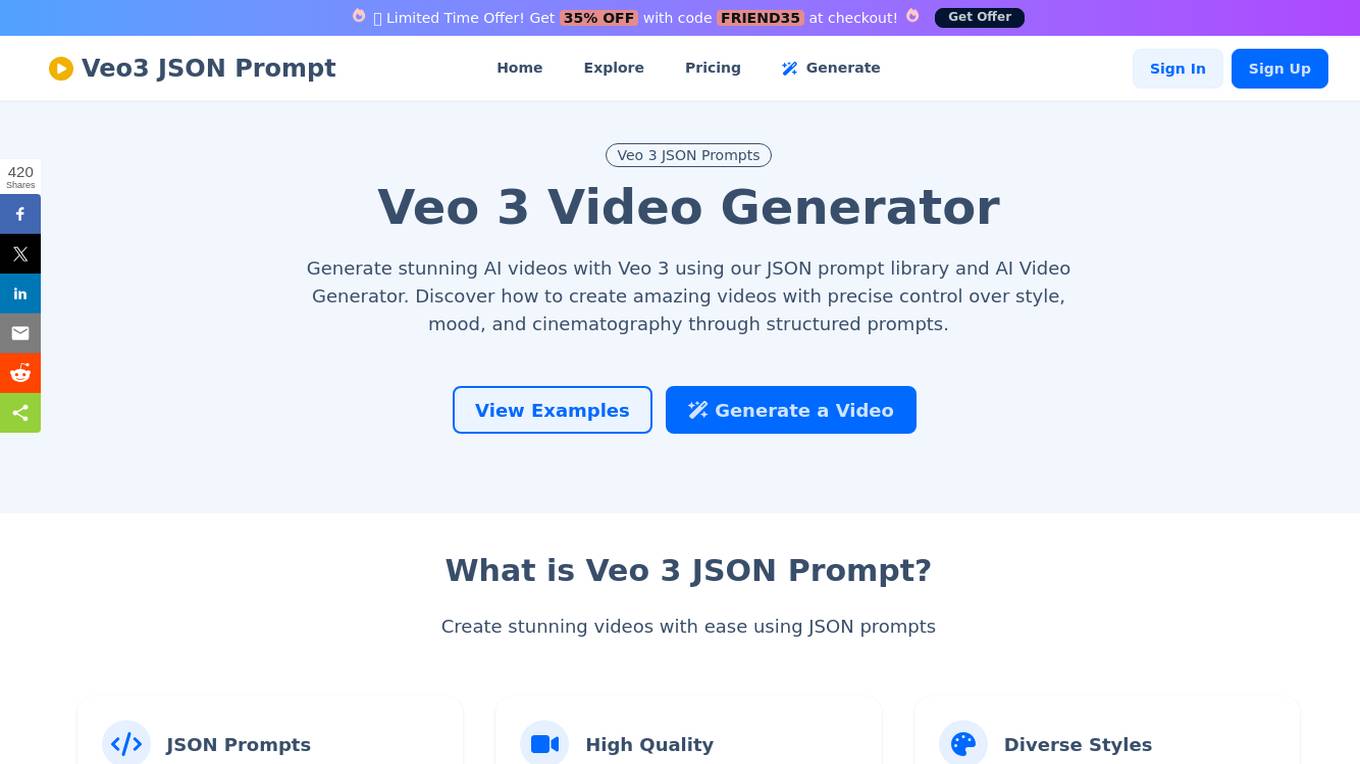
Veo3 JSON Prompt
Veo3 JSON Prompt is a professional AI video generation tool that allows users to create stunning videos with precise control over style, mood, and cinematography through structured JSON prompts. It offers high-quality 4K resolution videos with cinematic quality and diverse artistic styles, from cyberpunk to nature documentaries. Users can generate videos using detailed parameters for precise video generation control, exploring various video styles powered by Veo3 JSON prompts.
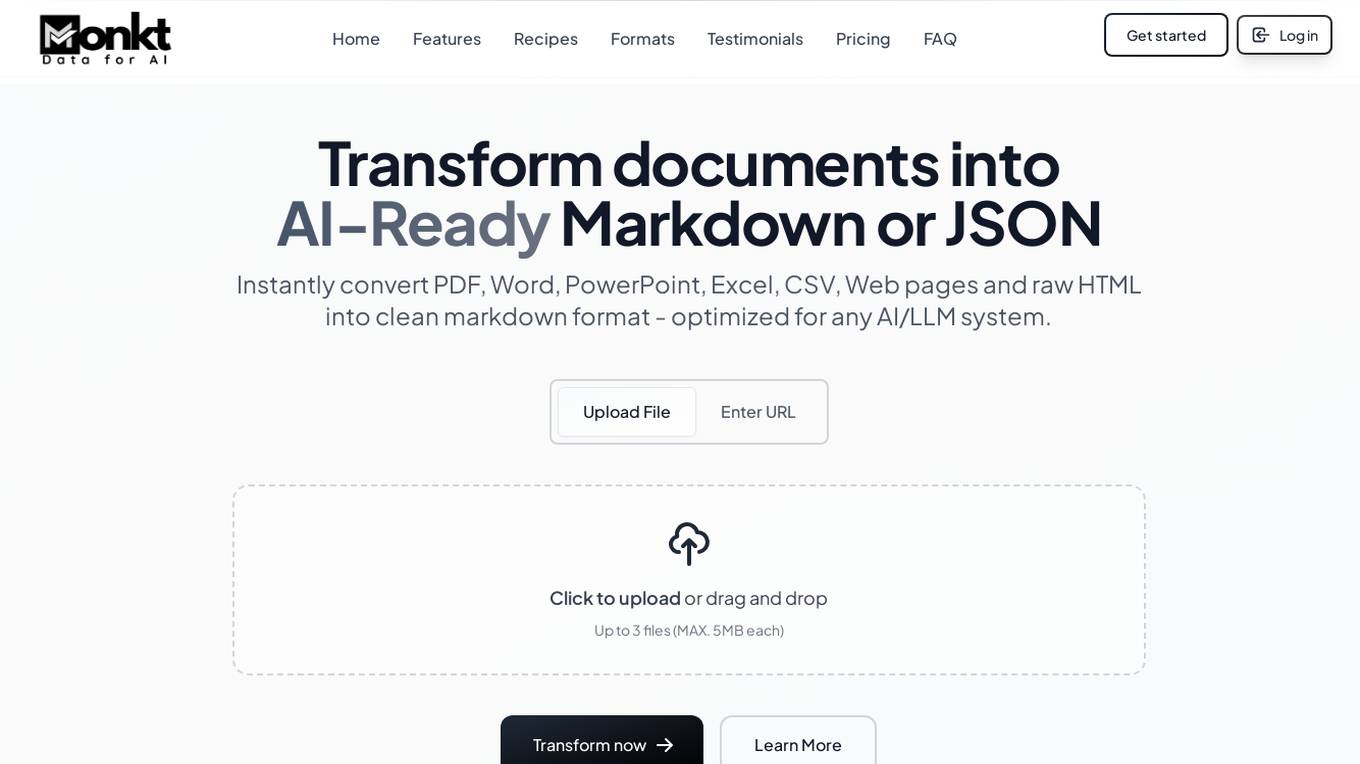
Monkt
Monkt is a powerful document processing platform that transforms various document formats into AI-ready Markdown or structured JSON. It offers features like instant conversion of PDF, Word, PowerPoint, Excel, CSV, web pages, and raw HTML into clean markdown format optimized for AI/LLM systems. Monkt enables users to create intelligent applications, custom AI chatbots, knowledge bases, and training datasets. It supports batch processing, image understanding, LLM optimization, and API integration for seamless document processing. The platform is designed to handle document transformation at scale, with support for multiple file formats and custom JSON schemas.
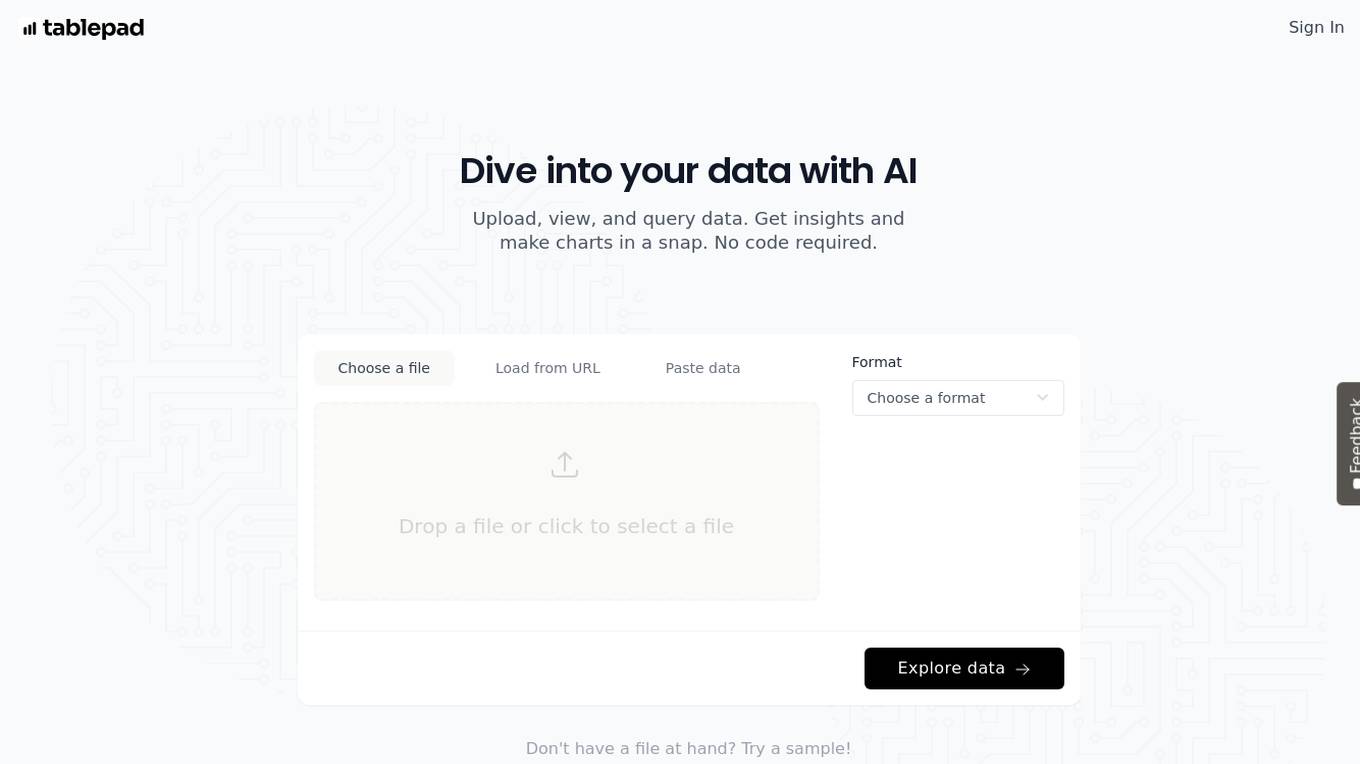
Tablepad
Tablepad is an AI-powered data analytics tool that allows users to upload, view, and query data effortlessly. With Tablepad, users can generate insights and create charts without the need for coding skills. The tool supports various file formats and offers automated visual insights by generating graphs and charts based on plain English questions. Tablepad simplifies data exploration and visualization, making it easy for users to uncover valuable insights from their data.
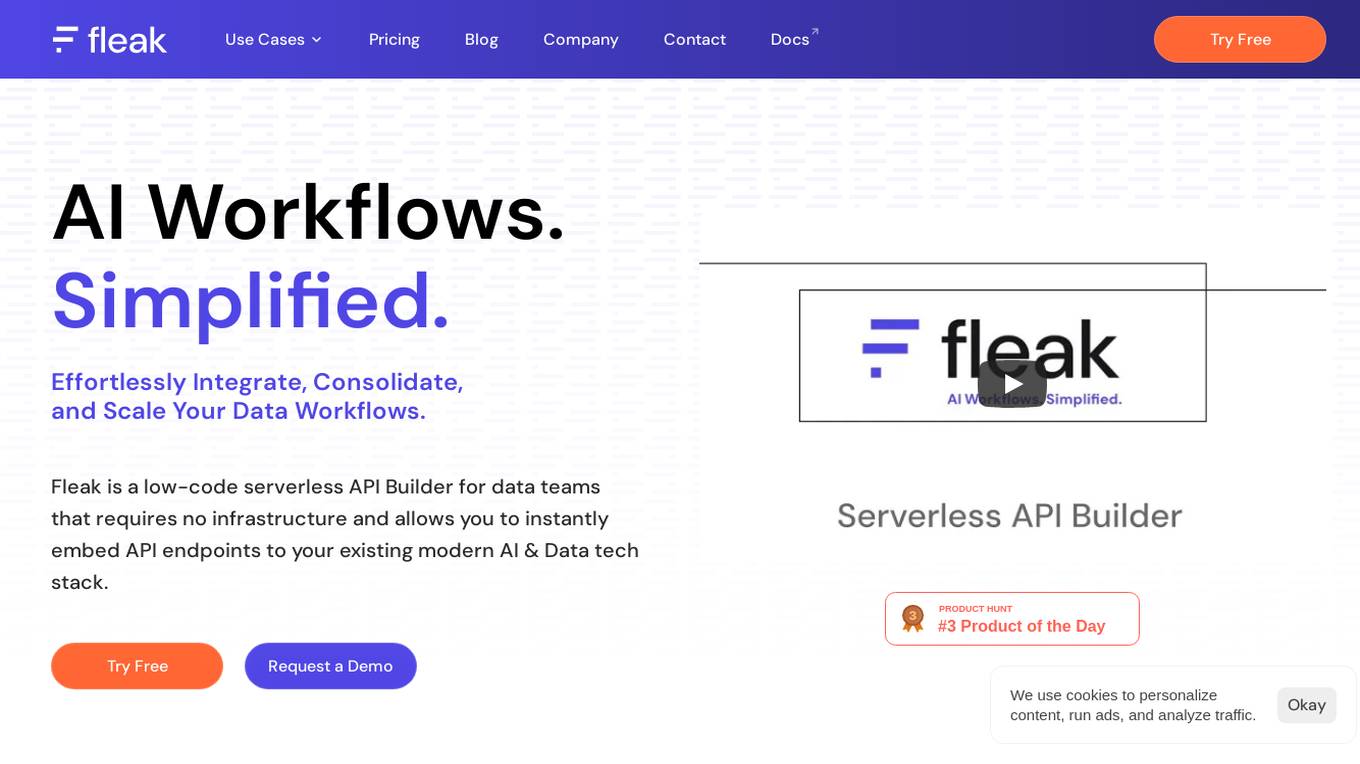
Fleak AI Workflows
Fleak AI Workflows is a low-code serverless API Builder designed for data teams to effortlessly integrate, consolidate, and scale their data workflows. It simplifies the process of creating, connecting, and deploying workflows in minutes, offering intuitive tools to handle data transformations and integrate AI models seamlessly. Fleak enables users to publish, manage, and monitor APIs effortlessly, without the need for infrastructure requirements. It supports various data types like JSON, SQL, CSV, and Plain Text, and allows integration with large language models, databases, and modern storage technologies.
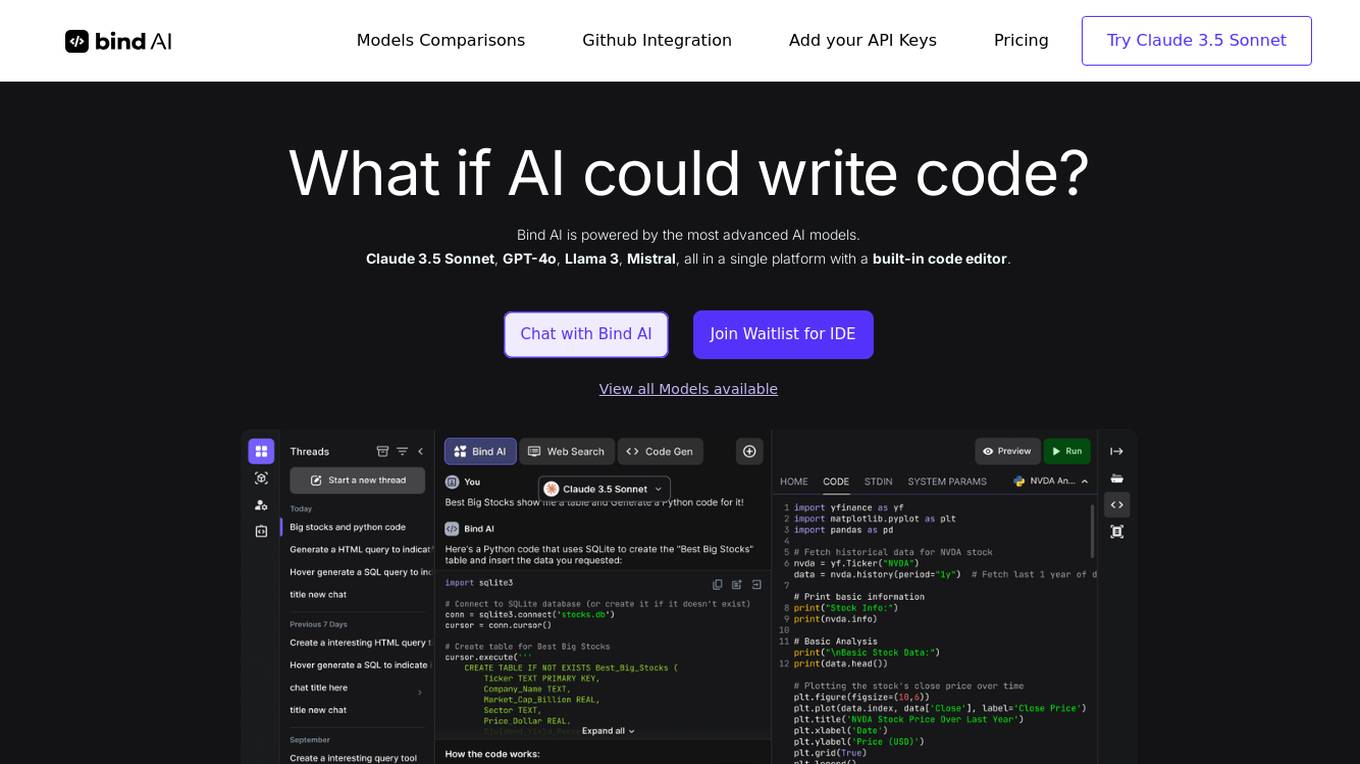
Bind AI
Bind AI is an advanced AI tool that enables users to generate code, scripts, and applications using a variety of AI models. It offers a platform with a built-in code editor and supports over 72 programming languages, including popular ones like Python, Java, and JavaScript. Users can create front-end web applications, parse JSON, write SQL queries, and automate tasks using the AI Code Editor. Bind AI also provides integration with Github and Google Drive, allowing users to sync their codebase and files for collaboration and development.
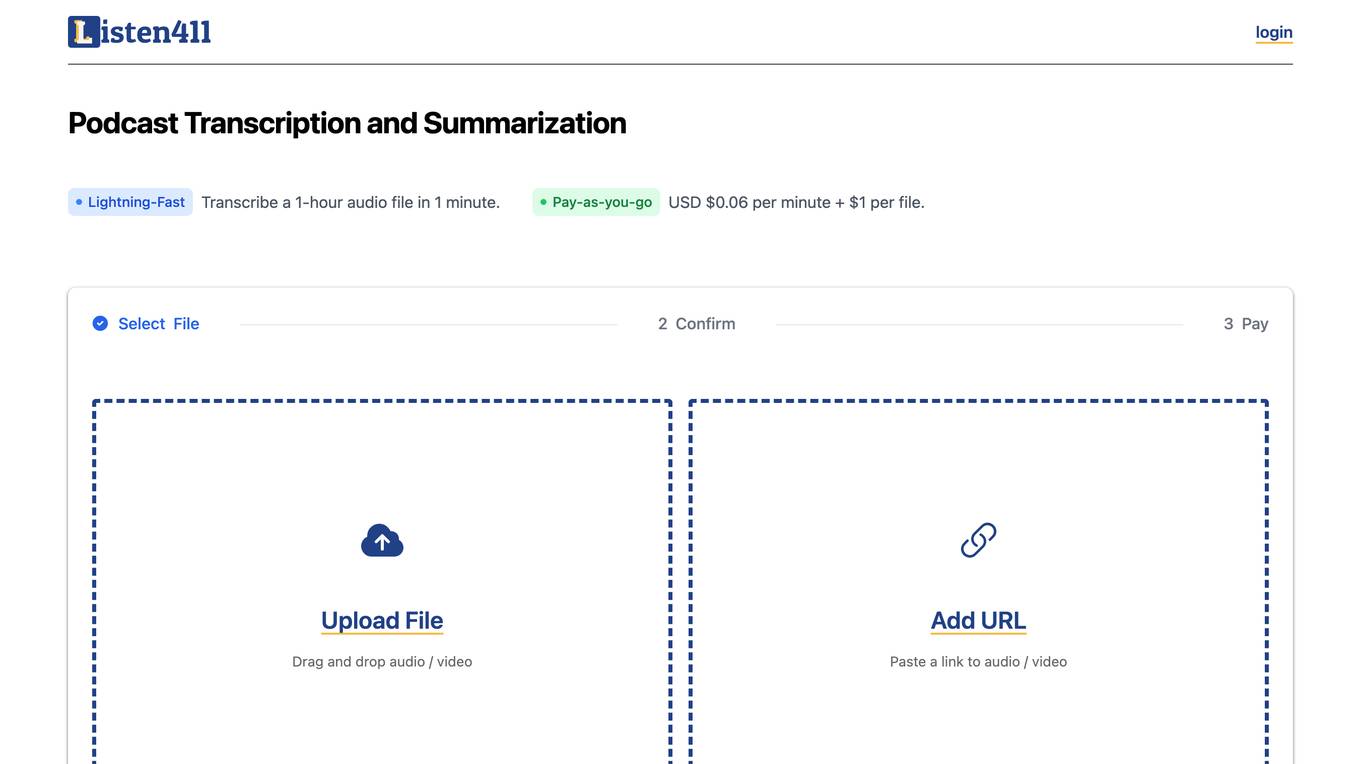
Listen411
Listen411 is a podcast transcription and summarization tool that uses AI to quickly and cheaply transcribe audio files. It supports multiple file formats and languages, and offers a pay-as-you-go pricing model. The transcripts are available in multiple file formats, including plain text, SRT, VTT, and JSON.
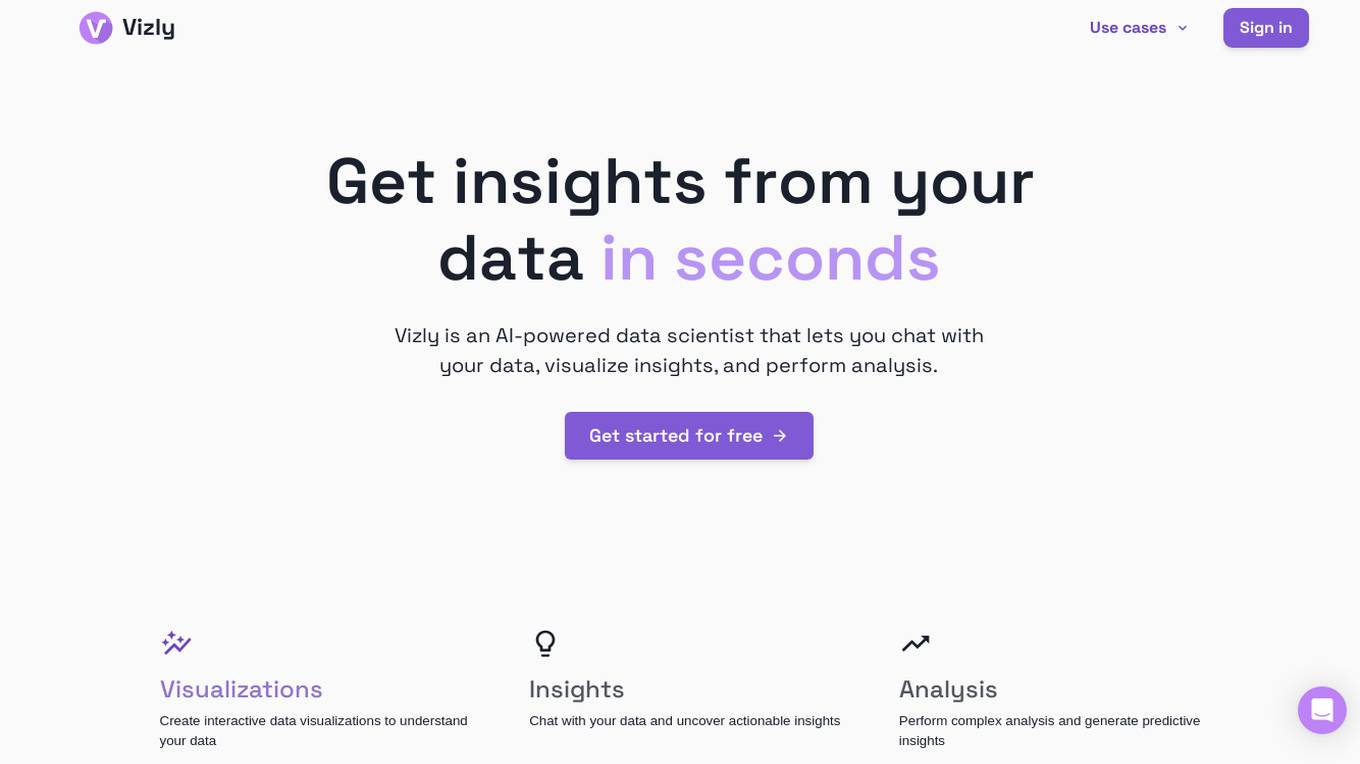
Vizly
Vizly is an AI-powered data analysis tool that empowers users to make the most of their data. It allows users to chat with their data, visualize insights, and perform complex analysis. Vizly supports various file formats like CSV, Excel, and JSON, making it versatile for different data sources. The tool is free to use for up to 10 messages per month and offers a student discount of 50%. Vizly is suitable for individuals, students, academics, and organizations looking to gain actionable insights from their data.
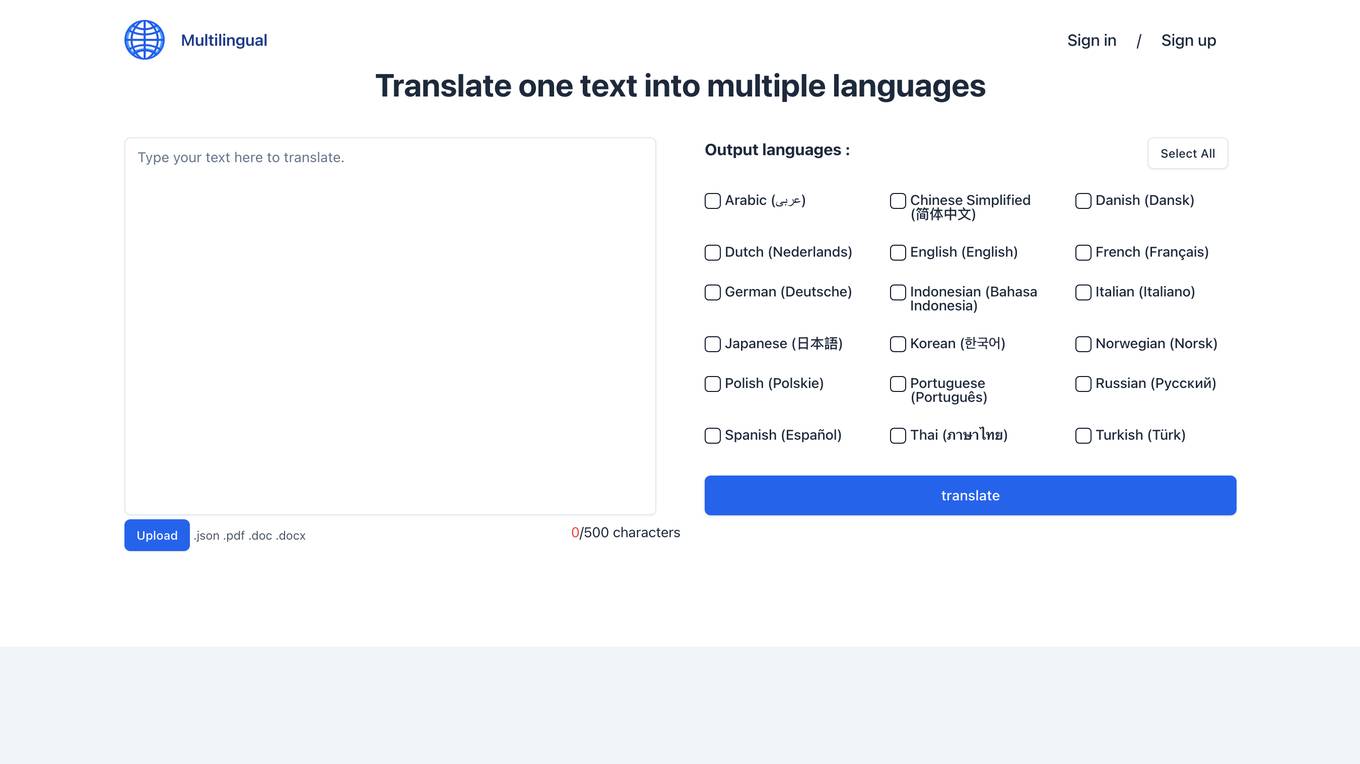
Multilingual.top
Multilingual.top is an advanced translation platform that enables users to translate text into multiple languages at once. It leverages artificial intelligence, specifically OpenAI's technology, to provide accurate and authentic translations. With Multilingual.top, users can break away from the traditional one-to-one translation limits and get multilingual results in one go, saving time and effort. The platform supports a wide range of languages, including Arabic, Chinese, Danish, Dutch, English, French, German, Indonesian, Italian, Japanese, Korean, Norwegian, Polish, Portuguese, Russian, Spanish, Thai, Turkish, and more. Multilingual.top offers a free translation service with some limits to prevent misuse and ensure everyone has fair access. Users can also upload documents in JSON, PDF, DOCX, and DOC formats for translation, making it especially useful for office workers and professionals dealing with documentation. The platform is continuously updated to improve translation accuracy and target language breadth.
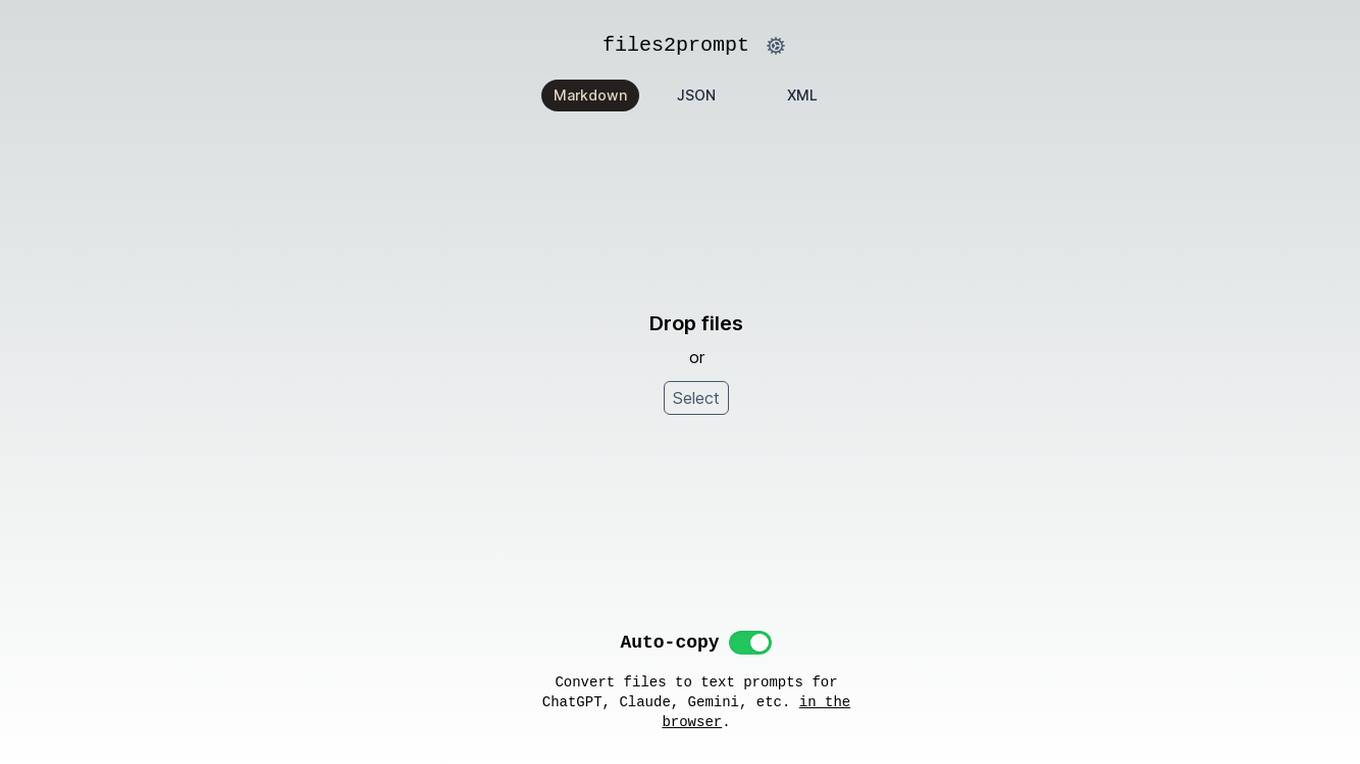
Files2Prompt
Files2Prompt is a free online tool that allows you to convert files to text prompts for large language models (LLMs) like ChatGPT, Claude, and Gemini. With Files2Prompt, you can easily generate prompts from various file formats, including Markdown, JSON, and XML. The converted prompts can be used to ask questions, generate text, translate languages, write different kinds of creative content, and more.
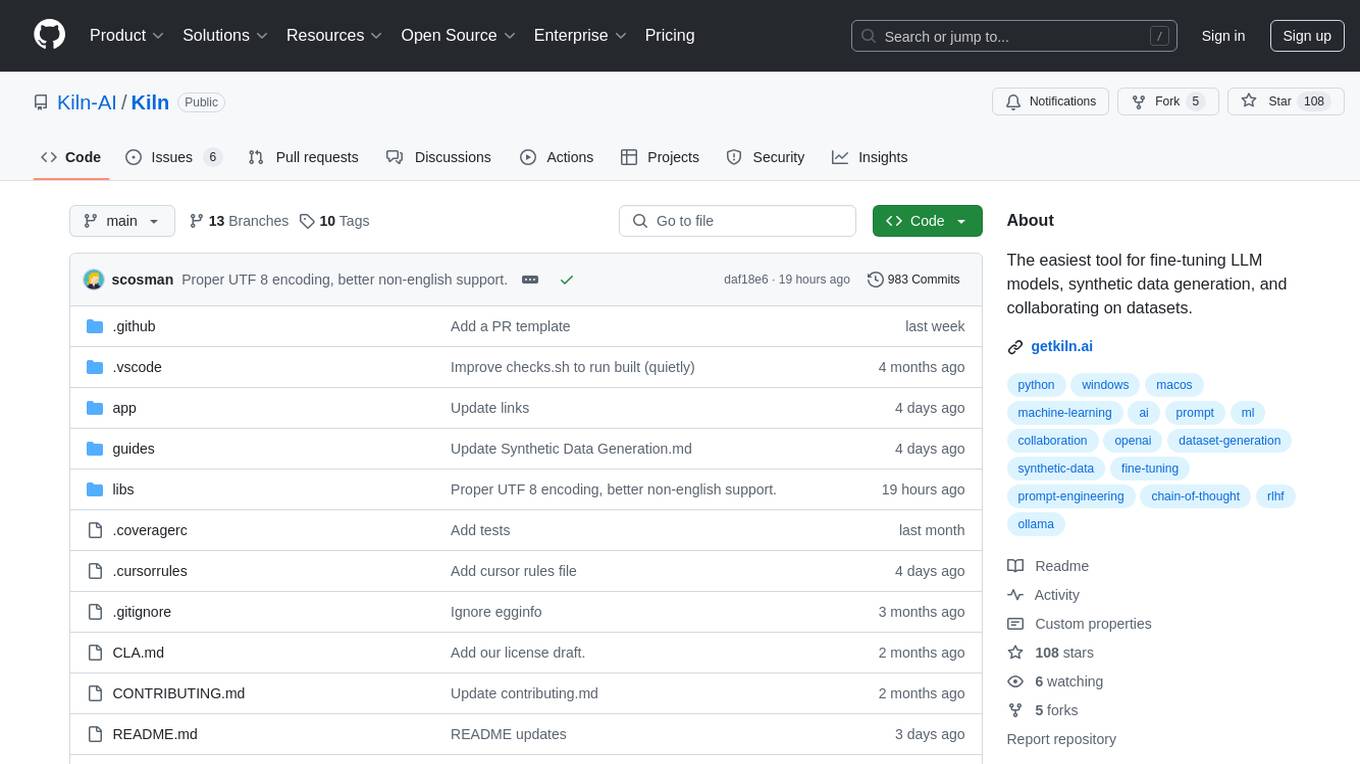
Kiln
Kiln is an AI tool designed for fine-tuning LLM models, generating synthetic data, and facilitating collaboration on datasets. It offers intuitive desktop apps, zero-code fine-tuning for various models, interactive visual tools for data generation, Git-based version control for datasets, and the ability to generate various prompts from data. Kiln supports a wide range of models and providers, provides an open-source library and API, prioritizes privacy, and allows structured data tasks in JSON format. The tool is free to use and focuses on rapid AI prototyping and dataset collaboration.
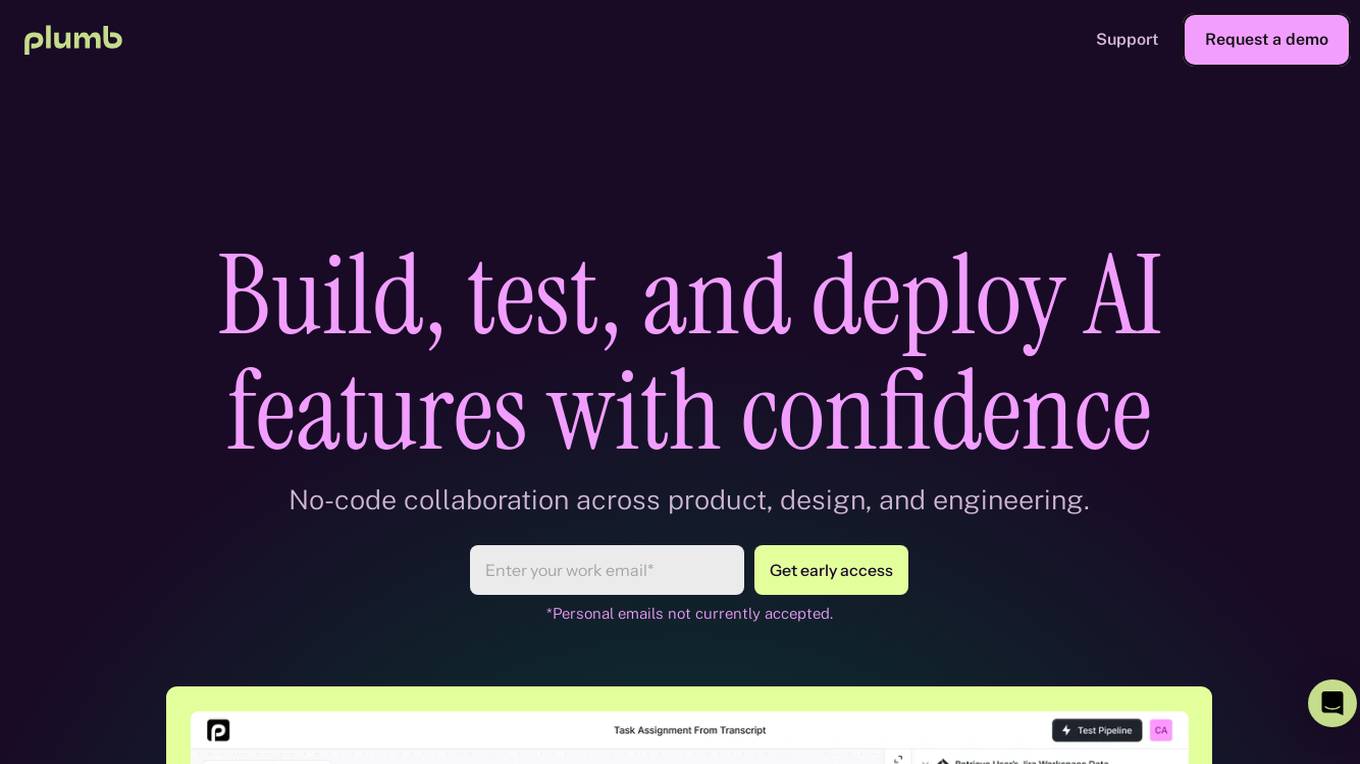
Plumb
Plumb is a no-code, node-based builder that empowers product, design, and engineering teams to create AI features together. It enables users to build, test, and deploy AI features with confidence, fostering collaboration across different disciplines. With Plumb, teams can ship prototypes directly to production, ensuring that the best prompts from the playground are the exact versions that go to production. It goes beyond automation, allowing users to build complex multi-tenant pipelines, transform data, and leverage validated JSON schema to create reliable, high-quality AI features that deliver real value to users. Plumb also makes it easy to compare prompt and model performance, enabling users to spot degradations, debug them, and ship fixes quickly. It is designed for SaaS teams, helping ambitious product teams collaborate to deliver state-of-the-art AI-powered experiences to their users at scale.
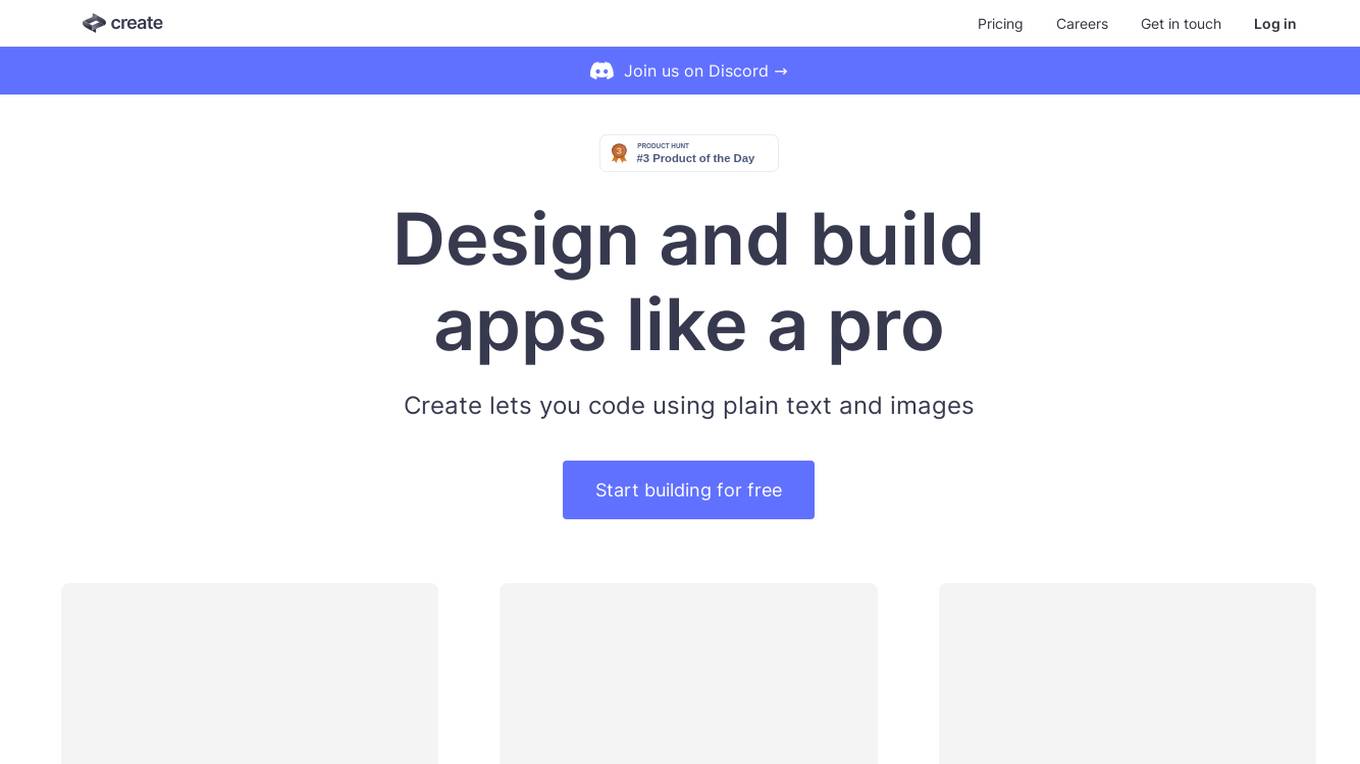
Create
Create is a free-to-use AI app builder that lets you code using plain text and images. With Create, you can design and build apps like a pro, without having to write a single line of code. Create is perfect for building internal tools, prototypes, and even full-fledged applications.
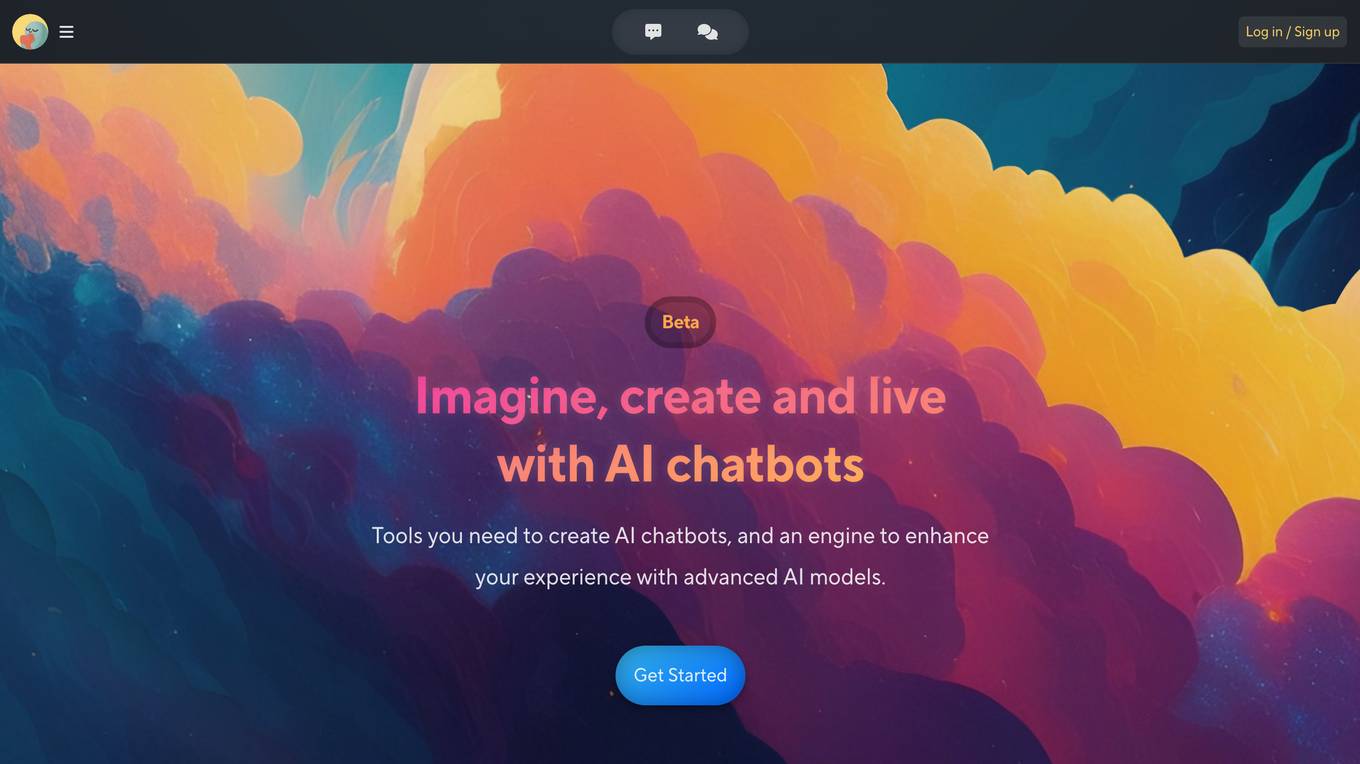
Create AI Characters and Chat with AI
This website allows users to create AI characters and chat with them. Users can customize their characters' appearance, personality, and interests. They can also choose from a variety of topics to chat about. The website uses artificial intelligence to generate the characters' responses, which are designed to be realistic and engaging.
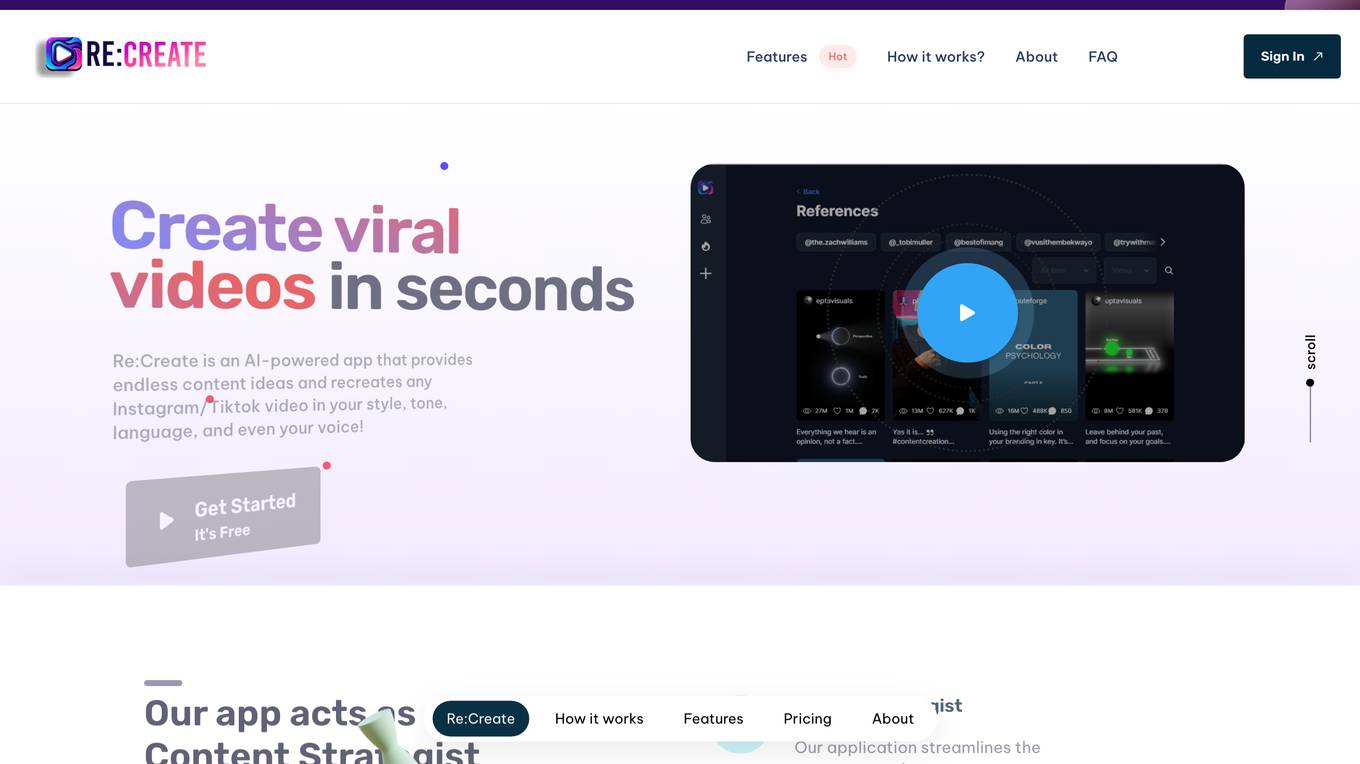
RE:Create
RE:Create is an AI-powered app that provides endless content ideas and recreates any Instagram/Tiktok video in your style, tone, language, and even your voice! Our application streamlines the content creation process, eliminating the need for extensive planning and strategy. Save time and effort while achieving effective results. No need to hire a separate voiceover artist. Our application offers customizable voice options, ensuring your videos have the perfect audio to complement the visuals. No need to hire a professional scriptwriter. Our platform assists in creating engaging video scripts, guiding you through the process and ensuring your content flows seamlessly.
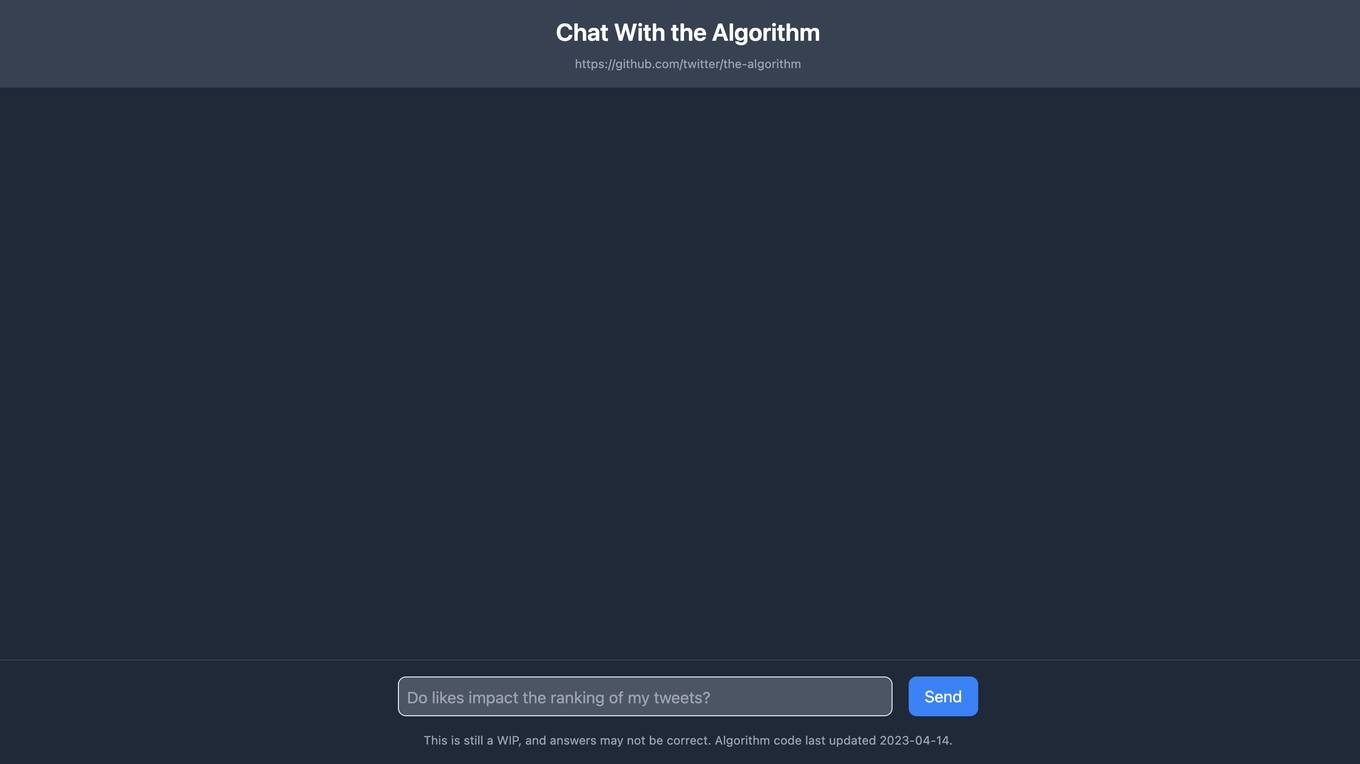
Create Next App Chat With the Algorithm
The website 'Create Next App Chat With the Algorithm' is an AI tool that allows users to generate chat applications using algorithms. It is a work in progress with the latest algorithm code updated on April 14, 2023. Users can leverage this tool to quickly create chat applications with the help of advanced algorithms.
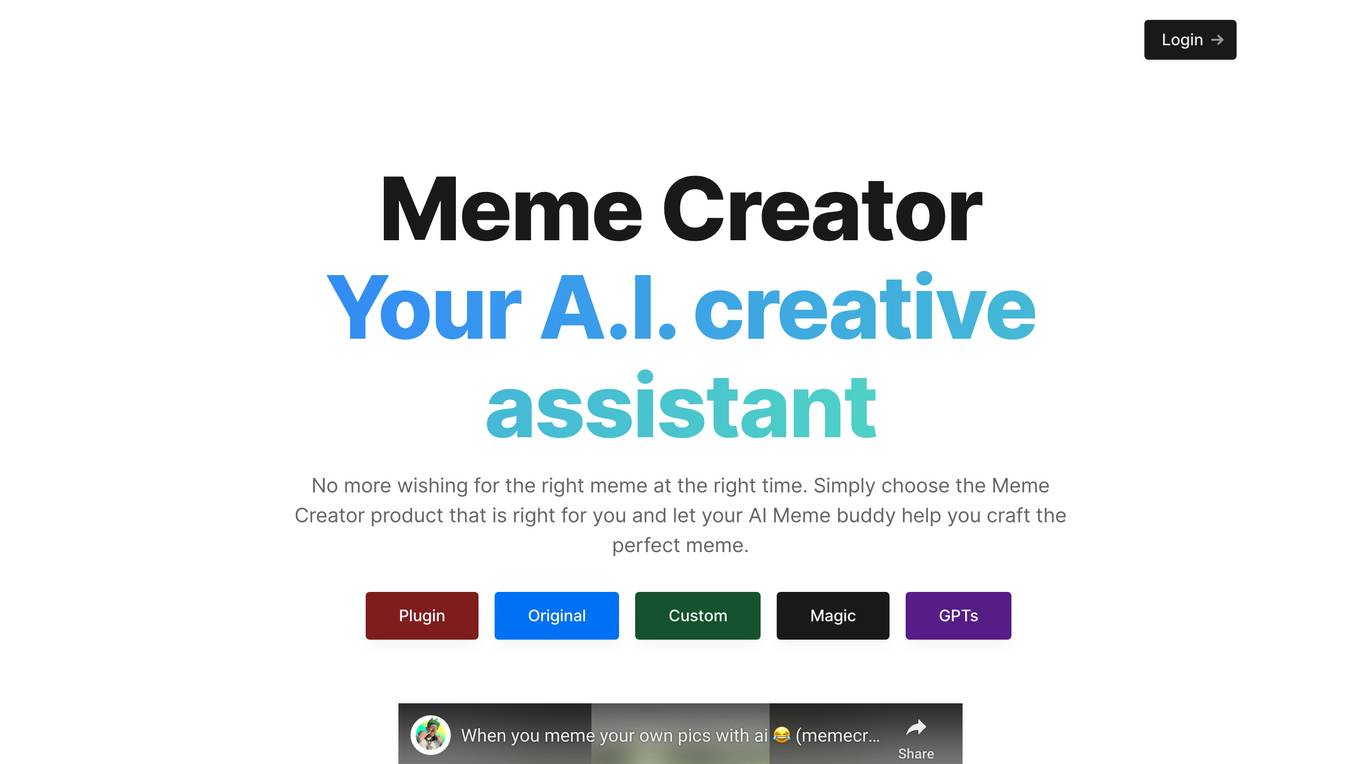
Create A Meme
Create A Meme (C.A.M) is an AI-powered platform that allows users to easily create personalized and unique memes. With features like Magic, Custom, Template, and Classic modes, users can unleash their creativity and make viral memes online for free. C.A.M offers basic functionalities for free and a Plus tier for enhanced meme capabilities. The platform supports multiple languages and AI technology ensures that memes are always funny and relevant.

Create AI Voiceovers
Create AI Voiceovers is an online text-to-speech generator that allows users to convert text into realistic-sounding AI voices. With over 530 AI voices available in 220+ languages and dialects, users can create voiceovers for various purposes, including marketing, eLearning, explainer videos, and animations. The platform offers a range of features, including the ability to adjust voice attributes such as pitch, emphasis, and speed, as well as add background music and sound effects. Create AI Voiceovers also provides a library of pre-recorded sound effects and music that users can incorporate into their voiceovers.

Create a Meme
Create a Meme is a website that allows users to create and share memes. It offers a variety of features, including a library of pre-made memes, the ability to upload your own images, and a variety of editing tools. Create a Meme is a popular website with over 100 million users. It is a great way to create and share funny and entertaining memes with your friends and family.
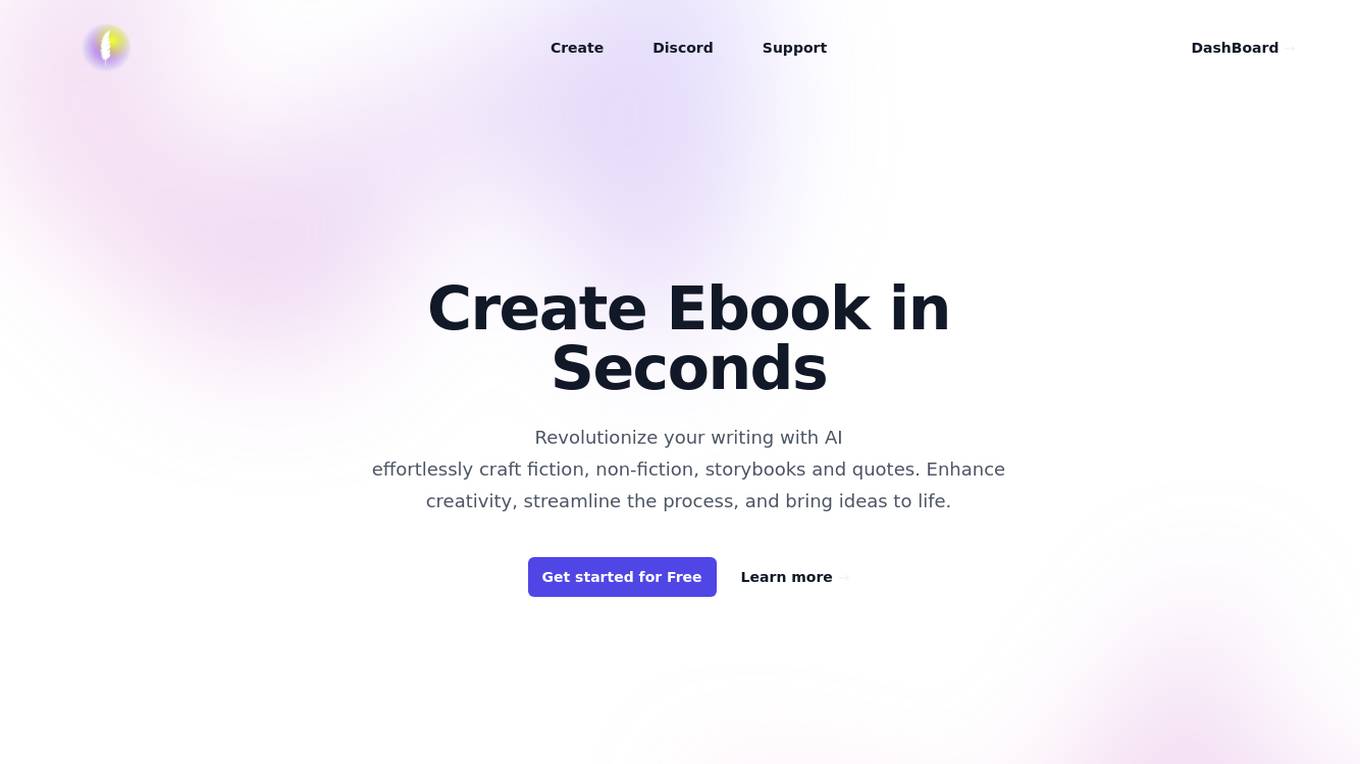
Create Ebook in Seconds
This website provides a tool that allows users to create ebooks in seconds. It is a simple and easy-to-use tool that can be used by anyone, regardless of their technical expertise. The tool provides a variety of templates and features that can be used to create professional-looking ebooks.
0 - Open Source AI Tools
20 - OpenAI Gpts
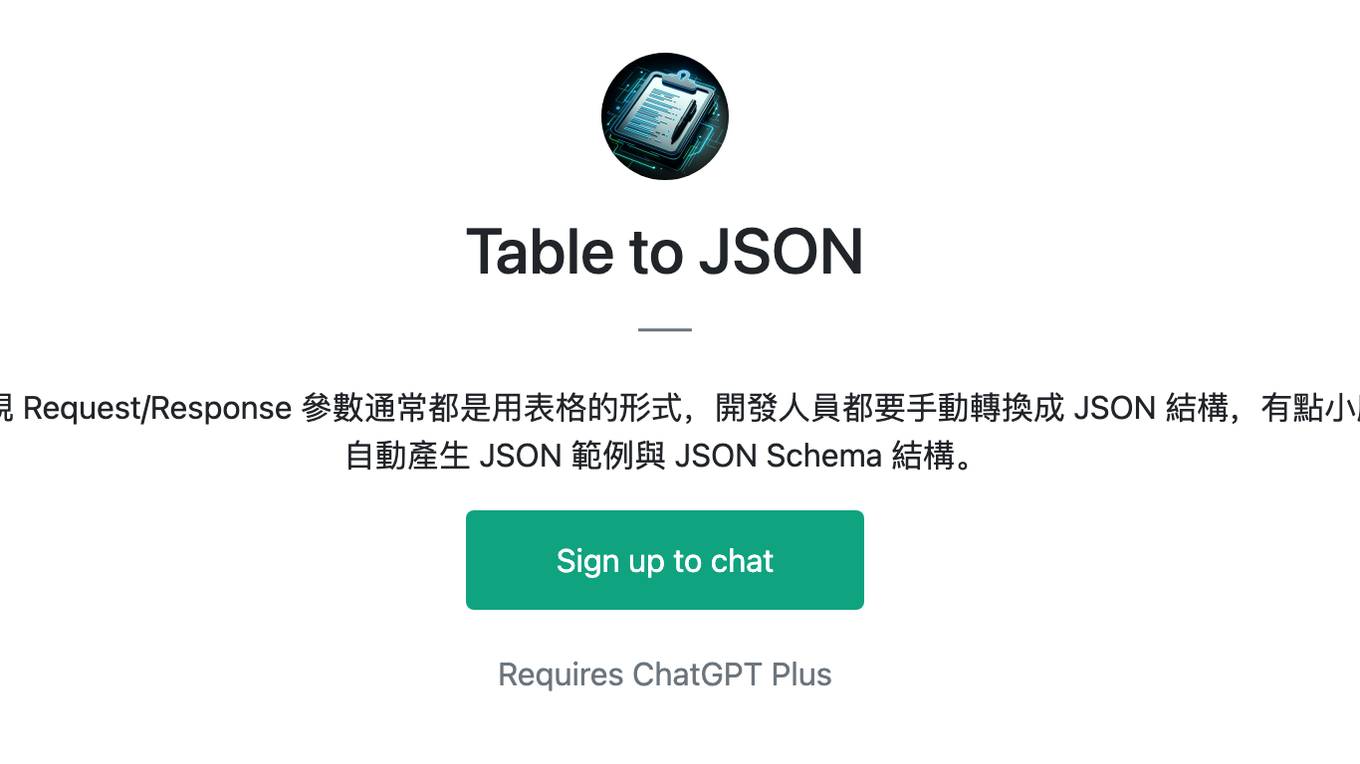
Table to JSON
我們經常在看 REST API 參考文件,文件中呈現 Request/Response 參數通常都是用表格的形式,開發人員都要手動轉換成 JSON 結構,有點小麻煩,但透過這個 GPT 只要上傳截圖就可以自動產生 JSON 範例與 JSON Schema 結構。
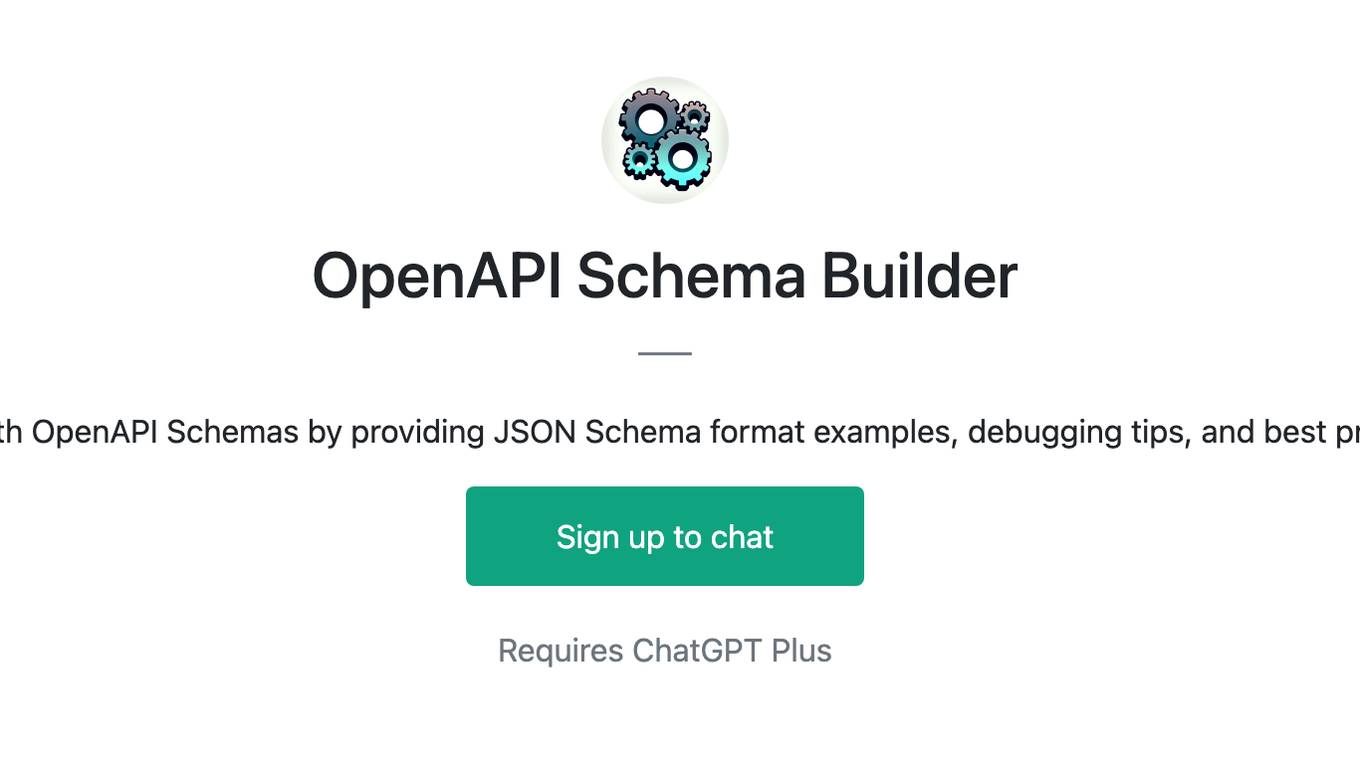
OpenAPI Schema Builder
Assists with OpenAPI Schemas by providing JSON Schema format examples, debugging tips, and best practices.
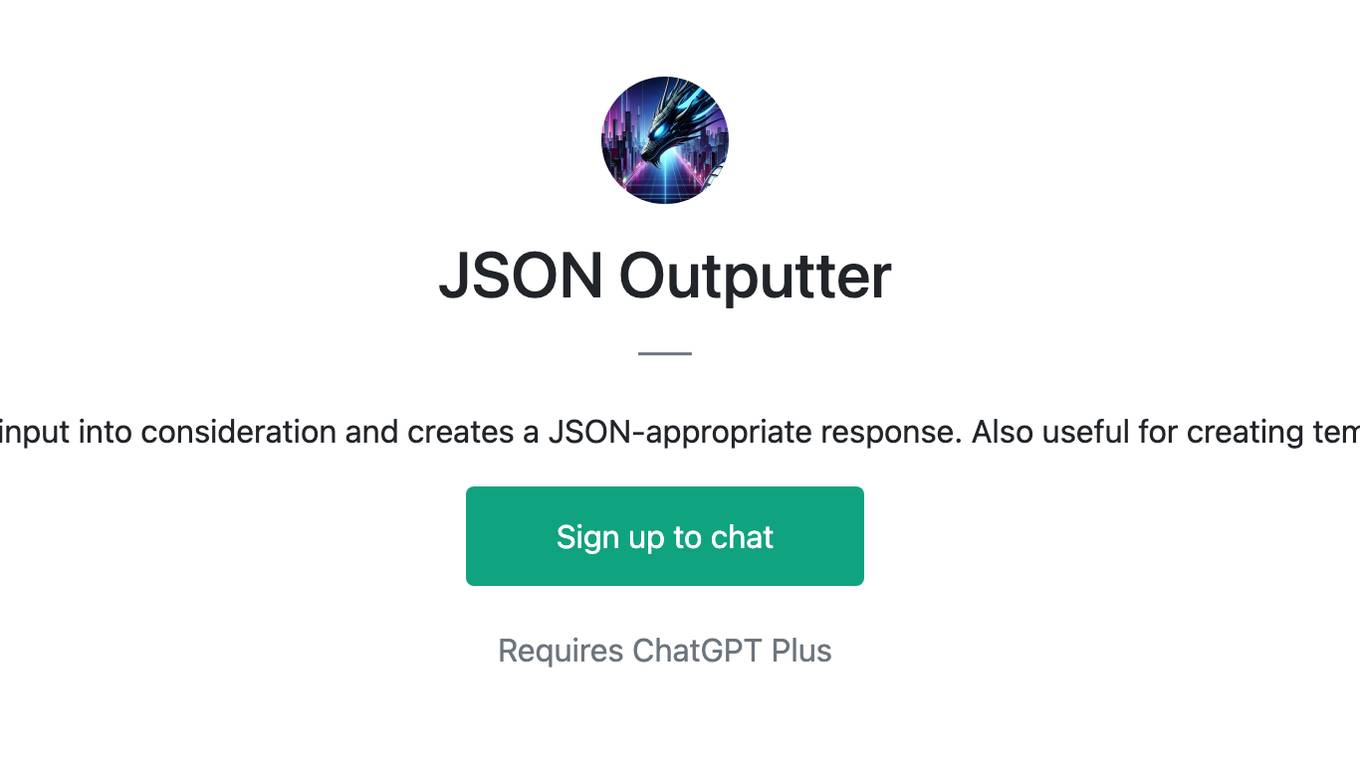
JSON Outputter
Takes all input into consideration and creates a JSON-appropriate response. Also useful for creating templates.

Vicky Vega
Generates Vega-Lite JSON code for Power BI visuals from data and descriptions.

Create an agent team
First, please say "Create an agent team to do 〇〇." / 最初に「〇〇をするためのエージェントチームを作成してください」とお伝え下さい

Create A Business Model Canvas For Your Business
Let's get started by telling me about your business: What do you offer? Who do you serve? ------------------------------------------------------- Need help Prompt Engineering? Reach out on LinkedIn: StephenHnilica
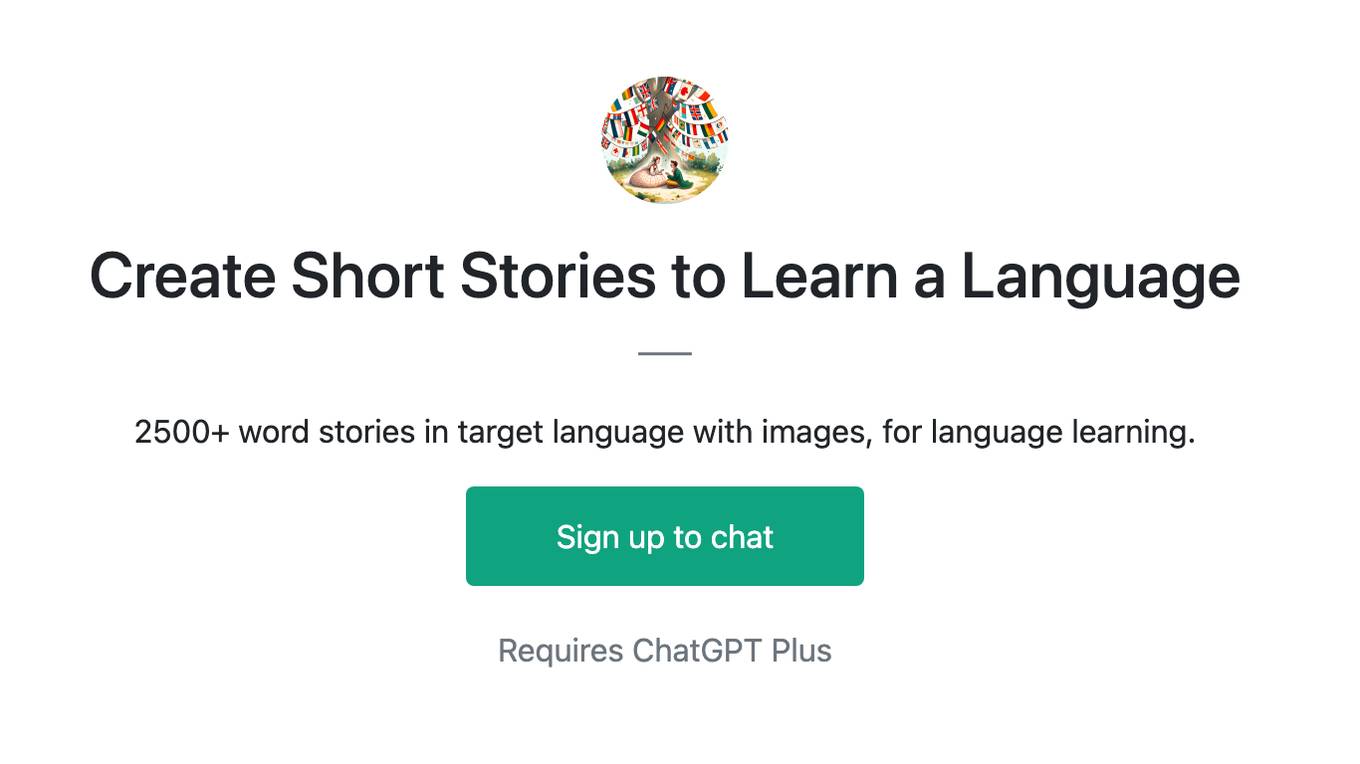
Create Short Stories to Learn a Language
2500+ word stories in target language with images, for language learning.
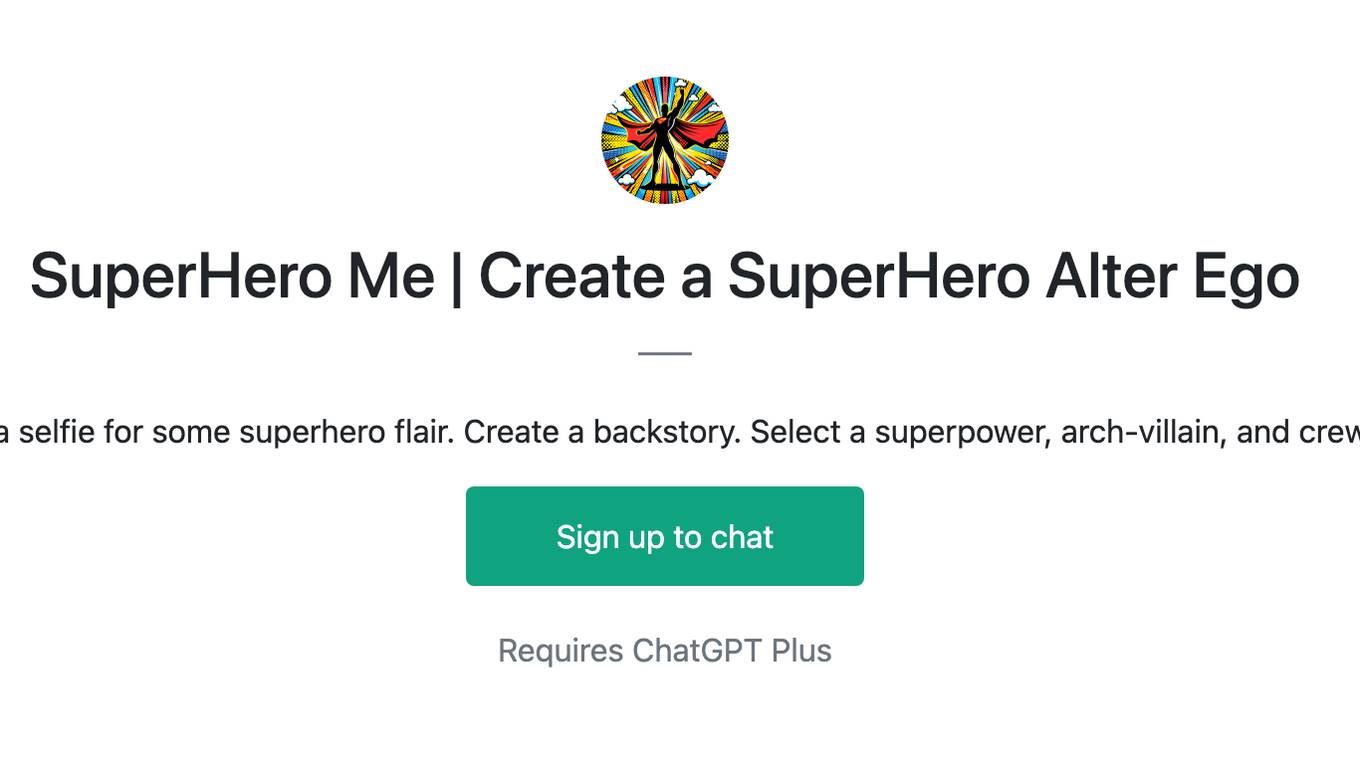
SuperHero Me | Create a SuperHero Alter Ego
Level up Now. Upload a selfie for some superhero flair. Create a backstory. Select a superpower, arch-villain, and crew. Answer trivia. Pow!

Create Your Christian Prayer
Tell me about your situation and the type of prayer you would like
